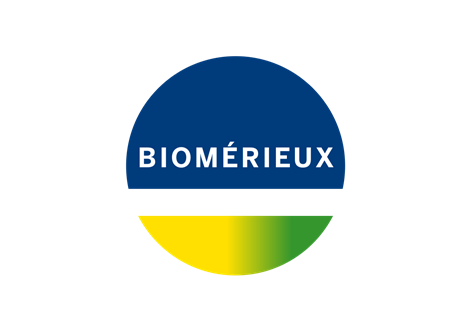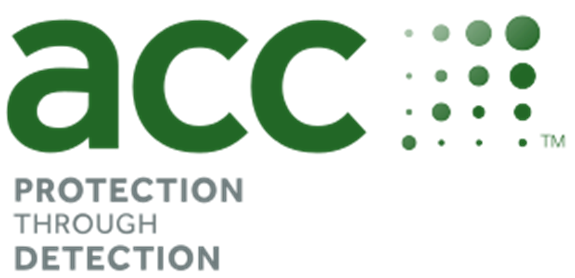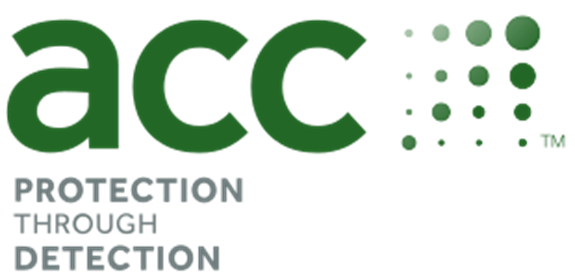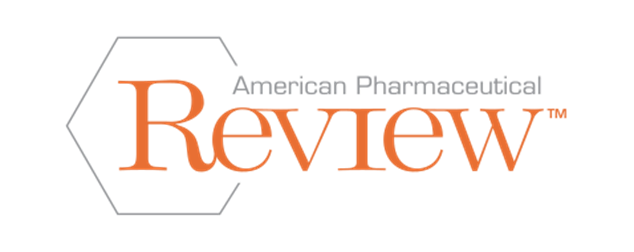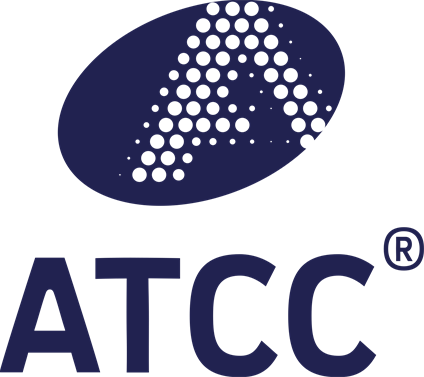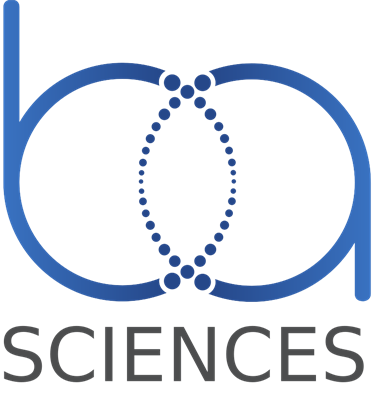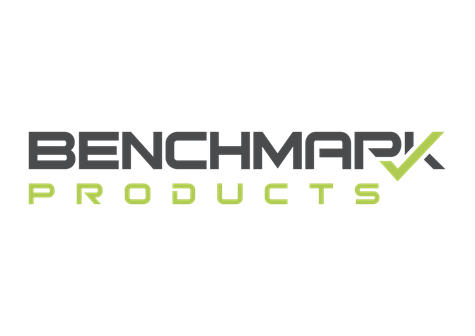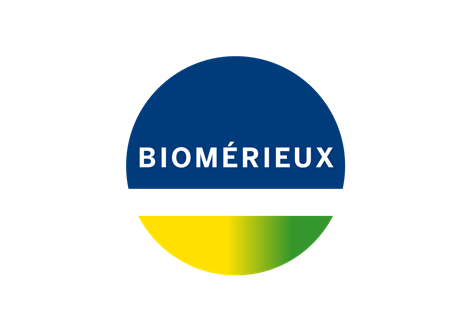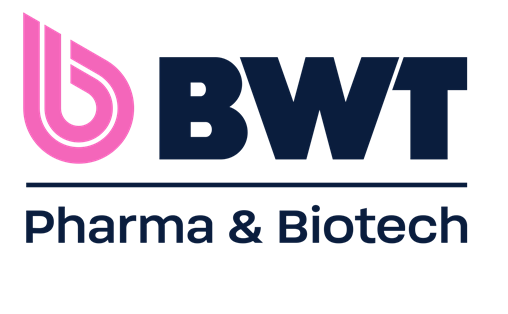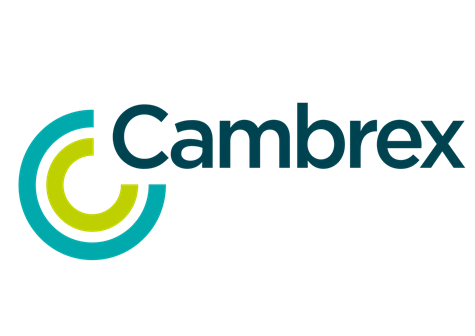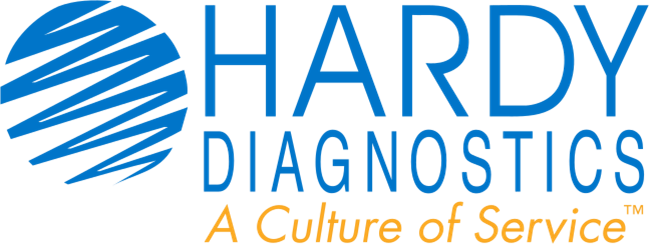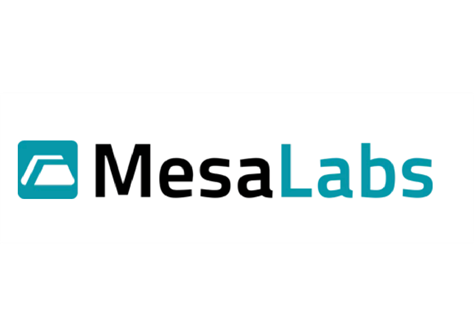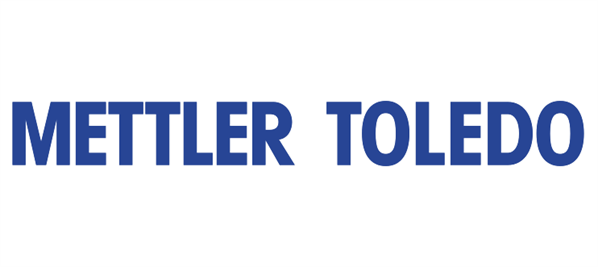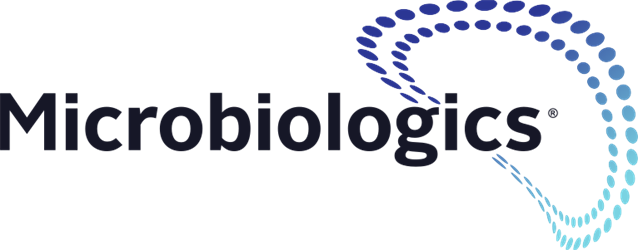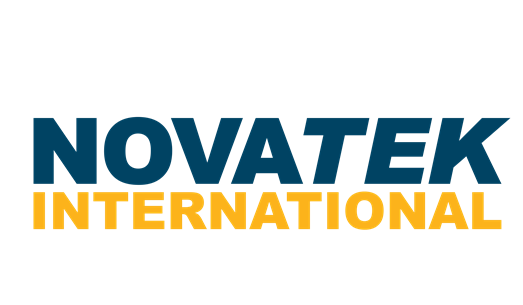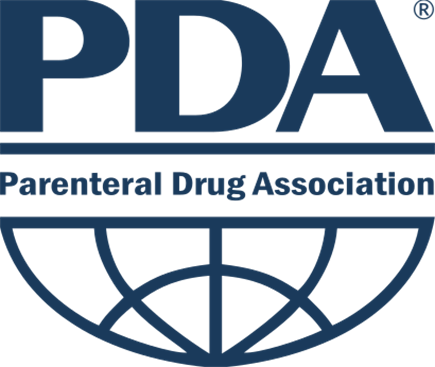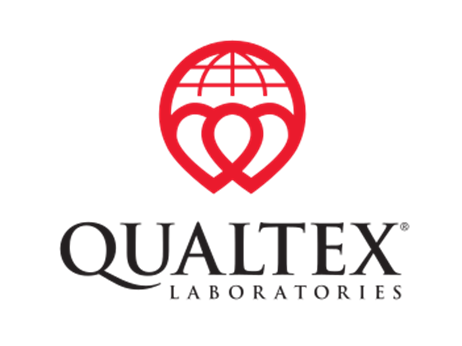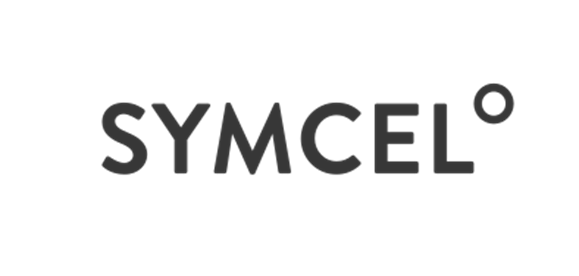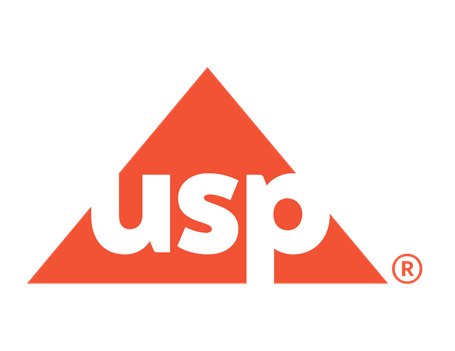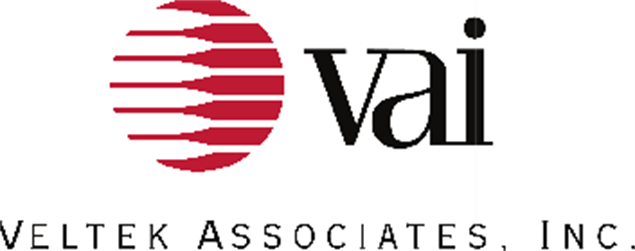
PDA Pharmaceutical Microbiology Conference 2025 - Archived
Microbial Resilience: Today’s Response, Tomorrow’s Plan
Networking Opportunities | Educational Sessions | Exhibit Hall
Poster Presentations | Post-Conference Workshops and Training Courses
Become a Sponsor and/or Exhibitor
Registration Options
Individual Registration
Group Registration
Archived Event Notice
This event has passed. To view current and future events, please visit the Global Event Calendar.
Join Us for the 20th Anniversary of the PDA Pharmaceutical Microbiology Conference!
Gain practical insights into the latest in pharmaceutical microbiology through focused sessions, case studies, and regulatory updates—designed to help you address today’s challenges and prepare for tomorrow’s innovations in contamination control, emerging technologies, regulatory trends, alternative microbiological methods, ATMPs, and much more!
The PDA Pharmaceutical Microbiology Conference 2025 marks two decades of advancing microbiological science and practice. This milestone event brings together the global microbiology community, including experts from industry, academia, and regulatory agencies, to explore the evolving landscape of pharmaceutical microbiology. This year’s theme, Microbial Resilience: Today’s Response, Tomorrow’s Plan, reflects our focus on navigating present-day challenges while building robust strategies for the future.
Special Highlights:
- Opening plenary on recovery and resilience following Hurricane Helene
- Presentation by Nobel Laureate Dr. Harvey Alter, discoverer of the Hepatitis C virus
- Career roundtable featuring experts sharing insights, lessons learned, and the realities behind career growth
- A sold-out Exhibit Hall with poster presenters, solution-providers, and peer networking during dedicated breaks with special anniversary activities
Whether you're a seasoned expert or new to the field, this landmark event is where ideas are shared, innovations take root, and the future of pharmaceutical microbiology is shaped.
Immediately following the Conference (29-30 Oct), PDA will offer a suite of in-depth workshops and training courses to extend your learning through hands-on application:
- PDA Pyrogens Workshop 2025
- Contamination Control Strategy Essentials Workshop
- Effective Sterility Assurance in Aseptic Processing Training Course
- Environmental Monitoring Methods and Investigations—Looking for the Needle in the Haystack Training Course
Registration is now open!
Agenda
Discover What's Happening Each Day
(Note: The file may take a moment to download depending on your connection.)
EDT Daylight Time (UTC -4:00)
-
Presenter Ready Room Open
Washington Boardroom
-
Registration Open
Constitution Foyer
EDT Daylight Time (UTC -4:00)
-
Continental Breakfast
Constitution Ballroom Foyer
-
Presenter Ready Room Open
Washington Boardroom
-
Registration Open
Constitution Foyer
-
P1: Lessons of Recovery and Resilience: Pharma and the Aftermath of the Hurricane Helene Disaster
Constitution Ballroom
-
Moderator:
-
Welcome and Opening Remarks from PDA Leadership and the Conference Co-Chairs
-
Board Chair:
-
President & CEO:
-
Co-Chair:
-
Co-Chair:
-
-
Deep Dive into Crisis Management: Ensuring Quality and Maintaining Operational Excellence
-
Drug Shortages: Root Causes and Potential Solutions
-
Q&A
-
-
Networking Break in the Exhibit Hall
Independence Ballroom
-
Poster Presentations
Independence Ballroom
-
(#01) AI Algorithms in the Pharmaceutical Environment
In the pharmaceutical industry, image analysis plays a crucial role in microbial identification. Traditional parametric algorithms, while effective for tracking microbial growth over time, struggle with differentiating between bacterial and fungal species due to their rigid predefined rules. Machine learning, particularly deep learning, offers a powerful alternative by learning complex patterns from large datasets, enabling more accurate and adaptable classification. The goal here is to explor the limitations of classical algorithms, the advantages of AI-driven approaches, and the methodology for building a robust training dataset to enhance model performance. A case study on automated mold identification on petri dishes will illustrate these concepts in a real-world application.-
Poster Presenter:
-
-
(#03) Adaptability of recombinant cascade reagent (rCR) to automated systems.
Interest in rFC and rCR, which are sustainable BET reagents, has been increasing year by year. Various organizations have been considering and evaluating the equivalence of recombinant reagents and conventional LAL reagents. In May 2025, recombinant reagents were officially listed in the USP as a method to perform the bacterial endotoxin test. As a result of these developments, consideration has begun to switch from LAL reagents to recombinant reagents, resulting in a growing interest in the suitability of recombinant reagents for use in automated analyzers to reduce inter-human variability in quality control using recombinant reagents and operational errors in processing multiple samples. We evaluated the suitability of our rCR reagent, PYROSTAR Neo+, for use in our fully automated, compact endotoxin measurement system, KLANOS. As a result, the measurement results obtained using the automated analyzer were found to have reduced inter-human variability and operational errors in processing multiple samples, compared to manual pipetting. In addition, comparative verification using various pharmaceutical samples showed results equivalent to those obtained using manual pipetting. These results show that, like LAL reagents, recombinant reagents can also be adapted to automated systems and are effective in reducing inter-human variability and operational errors in processing multiple samples. -
(#04) Advanced Microbial Strain Typing Using Whole Genome Sequencing
Microbial identification and strain typing are critical in pharmaceutical microbiology for ensuring product safety, controlling contaminants, and meeting regulatory requirements. Traditional strain typing methods like pulsed-field gel electrophoresis and multi-locus sequence typing have their limitations in scalability and resolution. Increased use of next-generation sequencing (NGS) techniques for microbial identification and characterization, coupled with the availability of bacterial whole genomes, advanced sequence analysis approaches such as single nucleotide polymorphisms (SNPs), core and pan-genome analysis, is opening the door for more modern approaches to microbial strain typing. However, several of these approaches are species-specific and require optimization per species or project. In this study, we analyzed conserved genes from several bacterial species to analyze the possibility of using these genes as a set of universal genes for prokaryotic strain typing. We compared the strain typing results using these universal genes to results from species-specific housekeeping genes and with species with no established strain typing methods. Our data demonstrated that these conserved genes successfully distinguished bacterial strains when compared to the results from established species-specific strain typing schemes, providing a path forward in the development of a rapid, universal strain typing solution using bacterial genomes that is not limited to a single species.-
Poster Presenter:
-
-
(#05) Alternative Methods in Microbial QC: Evaluating the Use of the ATCC MicroQuant™ as a Ready-To-Use Commercial Reference Microorganism Preparation on the Growth Direct® System
In the pharmaceutical industry, maintaining the highest standards of microbial Quality Control (QC) is critical to ensure safety and efficiency of pharmaceutical products. Precisely quantified reference microbial standards play a vital role in validating alternative microbiological methods by ensuring accurate, consistent, and reproducible results. This study evaluates the use and performance of ATCC MicroQuant™ reference material with the Growth Direct® System EM and Bioburden applications, showcasing an alternative approach to traditional microbial QC. Audience Take-Away Benefits The audience will benefit by gaining insights into how the ATCC MicroQuant™ can be a precise ready-to-use reference standard that pairs well with the Growth Direct® System. This poster highlights the benefits of a precisely quantitated reference standards when validating alternative microbiological methods such as the Growth Direct® System.-
Poster Presenter:
-
-
(#06) Aseptic Process Challenges: The Threat of Underperforming Disinfectants for cGMP applications
This poster evaluates the Disinfectant Efficacy Test (DET) of various sporicidal solutions and chemistries used in an aseptic manufacturing site for parenteral and ophthalmic products, guided by USP < 1072>. The assessment spans three different timeframes: the initial DET evaluation and two Corrective and Preventive Actions (CAPAs) prompted by sterility failures years later. It includes an analysis of different bacterial spore formers and the impact of disinfectant supply constraints on the market. The poster discusses the risks associated with the use of disinfectants that do not meet performance standards, emphasizing their potential threat to commercial operations. Additionally, it addresses the challenge posed by microorganisms with higher natural resistance, even when their isolation frequency is low in the environmental monitoring (EM) program.-
Poster Presenter:
-
-
(#07) Automating Endotoxin Testing in a GMP Environment
Roche has implemented an automated endotoxin system (Lonza PyroTec® PRO) in commercial Quality Control microbiology. The key drivers for the implementation were to reduce ergonomic risk, save time and resources, increase data integrity, simplify training, digitalization, digital data flow and increase the right-first-time rate. The strategic approach to implementation and conclusions from routine testing shall be shared and discussed. -
(#08) Bridging the Gap: A Comparison Study Between a Recombinant Cascade Reagent and Limulus Amebocyte Lysate
For more than 40 years, the Limulus Amebocyte Lysate (LAL) test has served as the standard method for bacterial endotoxin Testing (BET). The critical proteins required for endotoxin detection in LAL assays are sourced from amoebocytes—blood cells extracted from horseshoe crabs. Animal-free reagents have been developed to support conservation efforts and the 3Rs (Replacement, Reduction, and Refinement). One such alternative is the recombinant cascade reagent (rCR), which contains three recombinant proteins that replicate the natural enzymatic cascade found in horseshoe crab amoebocytes to detect bacterial endotoxins. This study assessed the equivalency of rCR to FDA-licensed LAL reagents using 563 pharmaceutically relevant samples. Of these, 134 samples were contaminated with natural environmental endotoxin (NEE), allowing for a direct statistical comparison. Results showed that the rCR assays were equivalent in performance to FDA-licensed LAL assays, detecting endotoxin at similar levels under real-world conditions. Equivalency was demonstrated using methods consistent with those outlined in compendial guidance for bacterial endotoxin testing.-
Poster Presenter:
-
-
(#09) Cleanroom Disinfectant Qualification (DET) as Part of Your Contamination Control Strategy and Other Annex 1 Considerations: To Wipe or Not to Wipe
When the current revision of Annex 1 was made enforceable in August of 2023, industry was faced with new regulatory expectations and many decisions as to how to achieve compliance. Development of a holistic contamination control strategy, being one of the major challenges. A robust contamination control program is a pillar of a contamination control strategy. The initial step to demonstrating the effectiveness of a control program is disinfectant qualification also known as disinfectant efficacy testing (DET). Annex 1 introduced multiple new regulatory expectations for DET study execution and there is not yet consensus in industry on best practice to comply with these expectations. One of the primary areas of uncertainty surrounds demonstrating efficacy of disinfectants, “in the manner in which they are used”. This presentation will evaluate through a data-based case study, if mechanical action and application method inclusion in DET coupon studies or in situ field studies is the most scientifically sound, best practice. This presentation will also cover the Annex 1 expectation surrounding liquid chemical material transfer validation and best practices and how to incorporate DET into your contamination control strategy.-
Poster Presenter:
-
-
(#10) Comparison of Three Methods to Determine the “Safety Margin” Used to Determine Final Release Time of Short-Lived Products per USP <72>
The introduction of USP < 72> offers a new regulatory pathway for shortening the release of short-lived pharmaceutical products, including cell and gene therapies, by allowing manufacturers to optimize growth conditions such as media formulation and temperature. The chapter dictates the final time to release is determined by the time to detection (TTD) of the slowest growing organism plus a provided “safety margin” formula. This formula relies on calculation of doubling time of the slowest growing microorganism which can be derived by various methods. We evaluated three methods to determine this doubling time: traditional plate enumeration, optical density, and a novel approach using the kinetics of the BACT/ALERT® system. The latter allows estimation of generation time directly from TTD curves based on CO2 production as measured by the BACT/ALERT® system. The benefits of this method include minimal handling time, offering a scalable, practical alternative to traditional methods. We compare all three methods across multiple organisms, including slow-growing anaerobes such as C. acnes, to assess applicability, repeatability, and robustness. The results demonstrate that BACT/ALERT®-based TTD analysis enables precise and efficient safety margin determination, supporting confident, faster release decisions in line with USP < 72>.-
Poster Presenter:
-
-
(#11) Considerations for Designing a Microbial Challenge Study
As the pharmaceutical industry continually evolves, so do regulatory requirements for biological products and establishing in-use hold times for products in a clinical setting. Although adapted from USP Chapter < 51>, microbial challenge studies are non-compendial studies that evaluate the microbial growth potential of a product spiked with a low level of microorganisms to simulate inadvertent contamination during dose preparation. Microbial challenge studies provide information on how long drug products can be held before patient safety is at risk, the effectiveness of any preservatives and/or preservative ingredients, optimum storage conditions, and ultimately, if the drug product formulation can withstand low level contamination. If microorganisms can grow in the product during the holding period, then the intended hold time, product formulation, or storage conditions should be reevaluated. When designing a microbial challenge study, multiple factors should be considered. This includes, but is not limited to, the inherent characteristics of the drug product formulation, the storage condition(s) of the drug product, target organisms (i.e., organisms prevalent in a hospital setting), diluents, and testing time points dictated by intended hold time.-
Poster Presenter:
-
-
(#12) Cracking the Mold Case: A Scientific Approach to Investigation & Control
A mold investigation is a focused, science-driven effort to uncover how contamination gets in, spreads, and survives—no assumptions, no shortcuts. It starts with a thorough analysis of mold recoveries across environmental, process, and product-related factors. Isolates are classified by fungal division, with reproductive state, source, and growth behaviour assessed. From there, environmental monitoring data and product failures are examined to complete the full picture. Facility conditions—structural integrity, airflow, material flow, and sanitation—are evaluated to identify weak spots mold might exploit. Operational procedures and personnel practices are scrutinized, revealing possible gaps that can fuel contamination. By combining these elements, the investigation doesn’t just react to mold—it anticipates it. This approach lays the groundwork for targeted, effective controls that protect both product integrity and environmental quality in regulated spaces.-
Poster Presenter:
-
-
(#13) Cutibacterium Acnes is Not Just a Problem for Teenagers: Improving Recovery in Rapid Sterility Testing
With the introduction and implementation of rapid respiratory-based sterility methods, the need to ensure consistent and reproducible results for Cutibacterium acnes has increased dramatically. As more products are introduced to markets requiring validation with this organism, a robust and proven methodology is needed that allows any analyst to generate robust, reproducible recoveries. Experimentation with this organism was performed to develop a process that ensures consistent recovery for this organism. Testing involved assessment of different type strains from various vendors as well as numerous preparations from each vendor and in house isolates. Strain / sample preparation was assessed to determine if commercial preparations at ≤ 100 CFU were more consistent than those which required dilution to reach the desired inoculum level. Additionally, variations to the inoculum procedure itself (e.g., needle gauge used in inoculation) were assessed to determine specific inoculation techniques that provided the most consistent organism recovery. A technique was developed that allowed inoculation to be performed without the need for single source vendor materials or an overly complex inoculation procedure. The technique was then disseminated across the network to allow groups utilizing rapid sterility methods achieve similar reproducible and consistent results with C. acnes and other compendial microbes. -
(#14) Data Analysis / Trending / Pattern recognition for Annex 1 Contamination Control Strategy
The regulations are evolving, for example EMA Annex 1, earlier versions did not mention trends, the current draft version mentions it 23 times. WHO, and FDA also talk about trending, root cause analysis, investigation, and using the data for these purposes. PDA technical report 13, the new revision, even states that automation for data management for environmental mentoring is “essential”. Trending the data is now a regulatory requirement but what trends should we use, and when? This presentation will include a review of key regulations as they relate to the need to use our data for trending including how often and what events should trigger trending, root cause analysis, and investigations. Also, which trend tools should we use for the different contamination control processes, cut off method, Control charts (Shewhart, etc..), Quantiles, Percentiles, Weibull Distribution, Scatter plot, Regression analysis for slope (upward/downward trends). The last 20 years we have been collecting data and regulations like Annex 11/21 CFR part 11, and more recently the data integrity guidelines, have facilitated that the data is accurate and reliable. Now this regulatory evolution is mandating the use of the data for the betterment of our processes, process control, product quality and patient safety.-
Poster Presenter:
-
-
(#15) Demystifying Low Endotoxin Recovery (LER)
Low Endotoxin Recovery (LER) is described as the inability to recover a known concentration of Control Standard Endotoxin (CSE), or Reference Standard Endotoxin (RSE) over time. It is a two-part reaction requiring a chelator and a surfactant. The chelator strips away the divalent cations causing the LPS aggregate to disassemble. Since Lipid A of LPS is hydrophobic, polysorbate encapsulates the LPS in a lipid micelle. This form of endotoxin is unable to react with Factor C of the Limulus Amebocyte Lysate. The FDA and EMA require all new biologic drugs submitted for approval to be assessed for the presence of the LER phenomenon. Organisms used to produce RSE/CSE standards are grown under high nutrient conditions including divalent cations, then purified. The divalent cations allow the organisms to develop “salt bridges” between adjacent lipopolysaccharide molecules. However, organisms in purified water systems are not exposed to divalent cations in their environment and adapt to this environment via the PhoP/PhoQ system on the bacterial surface, holding the outer membrane together. These adapted organisms’ endotoxin is not affected by the chelator, and the aggregates remain intact. This is the endotoxin that will contaminate the product if a breach in the water purification system happens. -
(#16) Designing a CCS that Focuses on Materials Transfer into Cleanrooms, RABS, and Isolators
This seminar will cover utilizing a contamination control strategy with a risk-based approach to materials transfer into cleanrooms, RABS, isolators, and BSC’s. There will be a focus on how to control hard to kill fungal spores such as Aspergillus and Penicillium as well as bacterial spores and viruses. Recent case studies from the past few months in ATMPF facilities and compounding pharmacies will be discussed in relation to materials transfer. Published data will also be mentioned to convey effective methods in control bioburden utilizing VHP, sporicidal chemistries, and disinfectants into the APA. This presentation will be a holistic approach to controlling bioburden from entering cleanrooms, BSC Hoods, RABS, and Isolators. New industry case studies in disinfectant field trials will also be covered and discussed in detail based on recent industry publications.-
Poster Presenter:
-
-
(#17) Detection of Bacillus Subtilis Endopores Using an Online Water Bioburden Analyzer
Bacterial endospores represent a significant challenge to the pharmaceutical industry due to their presence in the environment, resistance to many commonly used inactivation procedures, and difficulty in culturing using traditional plating methods. This may result in the inadvertent release of contaminated products that may present health concerns for the patient. As a result, the use of a bio-fluorescent particle counter (BFPC) may prove advantageous for the detection of both water-borne and air-borne spores as their detection is not dependent on traditional culturing methods. In this study, we investigate the ability of an online water bioburden analyzer (OWBA), a specific class of BFPC, to detect Bacillus subtilis spores in pharmaceutical-grade water and present the results as auto-fluorescence units (AFU’s) per B. subtilis spore. The spores were a commercial grade spore preparation and were previously quantified per manufacture recommendations. The results show that the OWBA can detect B. subtilis spores with an accuracy of 1.25 AFU per spore. The limit of detection was determined to be 1 spore/mL with a linearity greater than 0.9025 up to a concentration of 100 spores/mL. This data shows that OWBA’s are a rapid and effective tool for the detection of bacterial endospores in pharmaceutical waters.-
Poster Presenter:
-
-
(#18) Determination of Incubation Time to Detect Microbial Contamination in Compliance with USP<73> Guidelines
USP < 73> provides risk-based guidelines for the use of adenosine triphosphate (ATP) bioluminescence methods for rapid detection of viable microorganisms for short-life products. ATP bioluminescence detects the presence of viable contamination in less than seven (7) days compared to the required 14-day compendial sterility test. Determining the generation time of the slowest growing microorganism spanning bacteria, yeast and filamentous fungi in the presence of a product helps establish the incubation time of microbial detection. As per USP < 73>, inoculum levels for all tested microorganisms were less than 10 CFU. Appropriate enrichment broth and incubation conditions were followed, and product matrices such as mammalian cells and DNA plasmids were evaluated. Samples were filtered with a hollow fiber sampling tip, which captures any bacterial, fungal and yeast cells while removing cellular debris and any non-microbial ATP from the sample being tested. Microbial cells are eluted off the filter and collected in a collection tube for testing with an ATP-bioluminescence method based on the luciferin-luciferase cascade emitting light that is measured with a luminometer. This study demonstrates practical ways of identifying the slowest growing organism, determining generating time, and calculating time to detection, which are all relatively novel concepts for QC Microbiology Testing.-
Poster Presenter:
-
-
(#19) Developing a Comprehensive Organism Panel to Assess the Detection Capabilities of Growth Direct Rapid Sterility for Rapid Sterility Testing
USP < 1223>, EP 5.1.6 and PDA TR33 all require Specificity for the validation of alternative qualitative sterility test methods. Identifying a panel of organisms to perform Specificity testing and evaluation of RMMs beyond the pharmacopeial recommended organisms has been a challenging endeavor given the varying nature of environmental isolates and the inherent risk that what has been recovered at your site today may be different than what is recovered in future. This study outlines the approach taken by Rapid Micro Biosystems in identifying and testing a broad and comprehensive range of organisms to support the development of the Primary Validation for Growth Direct® Rapid Sterility to include those described in the regulatory chapters as well as those commonly cited by industry literature as being challenging and relevant. This study also aims to characterize the effects of a common stress application on the Growth Direct Rapid Sterility System’s detection capabilities.-
Poster Presenter:
-
-
(#20) Development of a Rapid, High-Resolution Microbial Identification Platform
The ability to deliver safe medications and vaccines, free of microbial contamination, is dependent on modern methods to identify bacteria that range from biochemical to genotypic in nature. Conventional genotypic methods for bacterial identification generally rely on small parts of the genome, but advancements in DNA sequencing technologies have reduced the time and cost needed to sequence whole genomes. In order to increase resolution in microbial identification and reduce time-to-result compared to conventional methods, we have developed a workflow for rapid identification of bacteria using Oxford Nanopore DNA sequencing that can reconstruct whole genome sequences with >99.8% accuracy to reference sequences. The reconstruction of an entire genome sequence enables high-resolution identification of bacteria. For example, the platform can rapidly differentiate closely related strains of Shigella and E. coli through taxonomic assignment using average nucleotide identity (ANI) and multi-locus sequence typing, and investigations into sub-strain-level differentiation using ANI are ongoing. The analysis of genome data normally requires a highly trained analyst, but work is underway to automate these computational processes as part of Merck’s patent-pending ViruScreen platform which enables multi-omic analytical research through an easy-to-use web portal.-
Poster Presenter:
-
-
(#21) Does Disinfection Influence your Environmental Monitoring Data or Does your Environmental Monitoring Data Influence your Disinfection Protocols?
The answer to this question is yes, and yes. The two subjects co-exist within pharmaceutical manufacturing in aseptic and sterile environments. This poster will highlight how environmental monitoring and disinfection provide continuous trending, process improvement, and final product evaluations. The processes need to be designed to identify outliers (biological and numerical) and objectionable organisms and assess cleaning protocols based on data collected. The information acquired through environmental monitoring and disinfectant efficacy studies helps to determine effective Root Cause Analysis and Corrective Action when issues with contamination are encountered. The processes, when performed and evaluated consistently will ensure that manufacturing environments are in a state of control and the products manufactured in sterile and aseptic environments are pure, safe, and effective. -
(#22) Establishment of 100GC Mycoplasma Standards Based on Nucleic Acid Amplification Technology According to the Newly Revised European Pharmacopoeia 2.6.7 and the USP<77>
Mycoplasma contamination is a concern in cell culture or cell culture media during biopharmaceutical manufacturing processes. These impurities pose a safety concern in Advanced Therapy Medicinal Products (ATMPs) due to their small size and resistance to common antibiotics used in cell culture. The minimum required detection limit for mycoplasma detection methods for pharmaceutical products is traditionally defined as 10 colony-forming units (CFU). This definition is based on the classical culture method for detecting and quantifying Mycoplasma. With the advent of novel methods for Mycoplasma detection, which are faster and more reliable, the classical culture method has been superseded by Nucleic Acid Amplification Technology (NAAT). Therefore, the new revised EP 2.6.7 and USP< 77> allow mycoplasma detection based on NAAT. Considering this new NAAT-based approach, new validation standards are needed that are based on genomic copies rather than colony-forming units. 100GC mycoplasma standards have been developed according to the revised European Pharmacopoeia 2.6.7, which are quantified using a novel, validated digital PCR assay. This assay offers advantages in accuracy and sensitivity compared to classical real-time PCR.-
Poster Presenter:
-
-
(#23) Evaluating Cleaning Efficacy of Disinfectant Residues on Environmental Surfaces Using a Matrix of Cleaning Solutions and Cleaning Substrates
The cleaning of process and environmental residues is a crucial aspect of contamination control strategy (CCS) and is mandated by several cGMP regulations. Environmental residues, which remain on surfaces post-disinfection, can accelerate the deterioration of manufacturing area surfaces and pose safety hazards, such as slip and fall risks for operators. The accumulation of environmental residues can also have an impact on the performance of disinfectants and may harbor microorganisms. This study evaluated textiles and rinsing agents and the combined effect they had on the removal of disinfectant residues on various common cleanroom surfaces. Variables included different cleaning solutions and a range of cleaning textiles (mops/wipes) with diverse substrates and textile constructions. The evaluation was conducted quantitatively by incorporating a fluorescent tracer dye into the disinfectant. Pixel analysis measured surface residue after the disinfectant was applied and dried. Subsequently, combinations of cleaning solutions and substrates were used to remove the disinfectant residue, and pixel analysis was performed again to determine the remaining residue. This poster will present the data visually, to provide insight into the considerations that must be made when establishing a residue removal regimen in critical cleanroom spaces.-
Poster Presenter:
-
-
(#24) Modern Adaptations to a Rapid Microbiological Method for Biologically Derived Products
Rapid methods have secured a foothold within the pharmaceutical industry. However, we continue to evolve our technologies to meet the increasing demand of modern medicines. One of the drawbacks for using metabolic by-products as an indicator of microorganism growth is the risk of poor differentiation between biological signals from the product and microbial metabolites. A new assay was designed to deal with a higher background signal. By utilizing a biochemical ATP-depletion reagent, coupled with utilizing microbial adenylate kinase to enhance ATP production, a more refined, flexible assay is available for rapid sterility testing. I present evidence demonstrating the reliability of modern ATP bioluminescence assays for testing biological products. Data graphs will include: • Diagram of ATP depletion/AK-ATP enhancement at the cellular level. • Case studies of Applicability of an ATP-depletion reagent o User eliminates the need for low-ATP sterility media (use any media supplier you want) o Reduction of residual signal from a biologically derived product. • 3-way Equivalence/LOD data amongst 1) Compendial Sterility 2) ATP Bioluminescence 3) ATP Bioluminescence with background depletion I will close with remarks on the future applicability towards a broader user-base that may have previously been prevented from using ATP Bioluminescence for rapid sterility.
-
-
Exhibit Hall Open
Independence Ballroom
-
P2: Breaking Biofilms: Reimagining Biofilm Control from the Inside Out
Constitution Ballroom
-
Moderator:
-
Biofilm Busting: The Journey from Bench to Clinic
-
Q&A
-
-
Networking Lunch in the Exhibit Hall
Independence Ballroom
-
A1: Comparing Apples to Oranges: When Calibration Standards Fail to Keep Pace with Advanced Technologies for Sterility Testing and Environmental Monitoring
Constitution Ballroom AB
-
Moderator:
-
A Universal Methodology for Calibrating Biofluorescent Particle Counters Using Real Microorganisms
The adoption of biofluorescent particle counters (BFPCs) for real-time viable air monitoring is rapidly expanding across the pharmaceutical industry. However, despite their growing implementation, there is currently no standardized guideline or regulatory framework defining how these instruments should be calibrated to verify their performance for the intended use. To ensure metrological traceability with current standards, such as EN 17141:2020 and EN ISO 14644-1:2015, we present a method of BFPCs testing with airborne microbiological particles. This presentation introduces this universal methodology for the periodic calibration of BFPCs, aiming to close a critical gap in current practice. To ensure that the viable particle tested will have no effect on the sterility during normal operation, a vaporized hydrogen peroxide (VHP) decontamination is proposed as a part of this procedure. By demonstrating the feasibility of routine calibrations with real viable particles, this methodology provides a practical framework for verifying instrument performance over time. The simplicity of the proposed procedure enables existing laboratories that qualify and calibrate active air samplers to apply it easily. Ultimately, the goal is to support end users, regulatory bodies, and manufacturers in unifying calibration practices and establishing reliable, science-based standards for BFPC periodic verification. -
Interlaboratory Evaluation of Eight Different Sterility Testing Methods Using a Standardized Sample Set
Successful implementation of alternative sterility testing methods have been reported on an individual basis; however, comparison of different methods across multiple laboratories using a standard sample set has not yet been assessed. In this study, 11 laboratories evaluated the performance of eight different test methods including growth-based/metabolic systems (n=5; BacT/ALERT, BACTEC, Celsis, Symcel, and USP < 71>) and molecular platforms (n=3; MAT (pyrogens), RNAseq, and Sartorius qPCR). Each laboratory/system combination tested a set of 27 blinded samples that contained 1 of 4 compendial microbes (S. aureus, P. aeruginosa, C. albicans, and A. brasiliensis) at 0, 10, or 100 CFU/mL spiked into 1M CD3+ T-cells/mL in 0.9% saline + 3% human albumin (in triplicate). From a total of 16 data sets, our results showed that viability-based methods (n=10) and RNAseq (n=1) had high sensitivity, specificity, accuracy and reproducibility. In contrast, MAT (n=1) and qPCR (n=4) struggled with exogenous DNA and LPS. Additional evaluation is underway to identify the source of contaminating LPS and exogenous DNA, which may be related to research- vs. clinical-grade materials. This study highlights that study materials must be fit for purpose and may not perform uniformly across different test platforms.-
Presenter:
-
-
Q&A
-
-
B1: Unlocking the Secrets to Environmental Monitoring Trending and Microbial Data Deviations: Harmonized Practices and Advanced Root Cause Analysis
Constitution Ballroom C-E
-
Moderator:
-
Review of Industry Practices for Environmental Monitoring Trending Highlights the Need for Industry Harmonized Guidance
Trending of environmental monitoring (EM) data, as part of a holistic EM program, is a regulatory requirement and enables continuous evaluation of the effectiveness of contamination control as outlined in a Contamination Control Strategy. Although EM trending is a regulatory requirement, there is a lack of industry-standardized guidance on the methodology, frequency, and trend response used for both routine and event-driven EM trending. An industry survey was conducted to understand the variability of the EM trending practices and to identify best practices and principles for the pharmaceutical industry to follow. The survey results will be reviewed; and points to consider to be included in an industry guidance document on EM trending will be discussed. This presentation will review the survey results and the industry guidance which is being developed on this topic. The guidance will encompass WHAT data to review, HOW to interpret the data and WHEN to perform EM trending to analyze if the respective manufacturing areas are in a state of control. -
The Case of the Missing Root Cause: When Fishbone Diagrams Aren’t Enough for Microbial Data Deviations
Microbial data deviations such as sterility test failures and environmental monitoring (EM) trend excursions are often difficult and time consuming to investigate. In many instances, a “smoking gun” root cause cannot be identified, and investigators are left with a list of potential root causes to address in the hope that the issue will be resolved. Currently, the most commonly used root cause analysis tools for such investigations are the Fishbone Diagram paired with a 5 Whys approach. These tools work well for brainstorming and for investigating one-off events, however, they frequently fall short when investigating adverse trends or more complex situations. This presentation will introduce Event and Causal Factor Charting, an advanced root cause analysis tool that is useful for multifaceted and complicated situations where multiple root causes and causal factors are possible. A case study of an EM adverse trend investigation will show how the Fishbone Diagram approach led the investigative team to incomplete understanding of the root cause, whereas subsequent use of the Event and Causal Factor Charting exercise identified multiple systemic root causes that were previously missed. -
Q&A
-
-
C1: Bio-Decontamination in Focus: Enhancing Vaporized Hydrogen Peroxide Validation and Control for Aseptic Environments
Lafayette Park/Farragut Square
-
Moderator:
-
The Hidden Threat in VHP Cycle Validation: Quantifying the Impact of Rogue/Late-Positive Biological Indicators Using Statistical Models and Monte Carlo Simulations
Spore-based biological indicators (BIs) are critical for validating vaporized hydrogen peroxide (VHP)-based decontamination cycles, offering a robust measure of microbial inactivation. However, the presence of "rogue" or "late-positive" BIs that resist to the VHP sporicidal effect beyond expected levels, can lead to false-positive results, potentially compromising the reliability of validation protocols. This presentation explores the “rogue” dynamics and the statistical impact of rogue BIs within Performance Qualification (PQ) procedures for aseptic isolators using VHP. By modeling the PQ rules mathematically, the study quantifies how even a low incidence of rogue BIs can exponentially increase the probability of PQ failure. Three key PQ criteria are analyzed: (A) the presence of multiple positive BIs in a single location, (B) exceeding a pre-defined threshold of positive locations (e.g. 5%), and (C) recurrence of positive results in the same location across cycles. The analysis demonstrates that a rogue BI mean rate exceeding 0.3% significantly elevates the risk of PQ failure, even in otherwise effective decontamination cycles. A Monte Carlo testing approach is used to provide realistic failure probabilities, highlighting the need for BIs batch rogue-tests or alternative mitigation strategies. The proposed methodology serves as a predictive tool to optimize validation protocols and ensure successful qualifications of aseptic isolators. -
Applicability of VHP for Contamination Control of Lyophilized Biohazards
Biologics and advanced therapy medicinal products (ATMPs) are often lyophilized to maintain stability, but this form complicates post-production decontamination, particularly when hazardous materials are involved. Vaporized hydrogen peroxide (VHP) is widely used for surface decontamination and is considered a promising method for post-production decontamination due to its ability to degrade biohazards into nontoxic byproducts. However, its efficacy against lyophilized residues remains uncertain. This study investigates the effectiveness of VHP decontamination for lyophilized biologics and ATMPs by examining the impact on lyophilized Geobacillus stearothermophilus and formulation composition using pharmaceutically relevant matrices. The results reveal challenges in inactivation of lyophilized drug products and propose an isolator design solution to mitigate these limitations, supporting safe handling and robust contamination control in the manufacture of lyophilized biologics and ATMPs. -
Q&A
-
-
Networking Break in the Exhibit Hall
Independence Ballroom
-
Poster Presentations
Independence Ballroom
-
(#01) AI Algorithms in the Pharmaceutical Environment
In the pharmaceutical industry, image analysis plays a crucial role in microbial identification. Traditional parametric algorithms, while effective for tracking microbial growth over time, struggle with differentiating between bacterial and fungal species due to their rigid predefined rules. Machine learning, particularly deep learning, offers a powerful alternative by learning complex patterns from large datasets, enabling more accurate and adaptable classification. The goal here is to explor the limitations of classical algorithms, the advantages of AI-driven approaches, and the methodology for building a robust training dataset to enhance model performance. A case study on automated mold identification on petri dishes will illustrate these concepts in a real-world application.-
Poster Presenter:
-
-
(#03) Adaptability of recombinant cascade reagent (rCR) to automated systems.
Interest in rFC and rCR, which are sustainable BET reagents, has been increasing year by year. Various organizations have been considering and evaluating the equivalence of recombinant reagents and conventional LAL reagents. In May 2025, recombinant reagents were officially listed in the USP as a method to perform the bacterial endotoxin test. As a result of these developments, consideration has begun to switch from LAL reagents to recombinant reagents, resulting in a growing interest in the suitability of recombinant reagents for use in automated analyzers to reduce inter-human variability in quality control using recombinant reagents and operational errors in processing multiple samples. We evaluated the suitability of our rCR reagent, PYROSTAR Neo+, for use in our fully automated, compact endotoxin measurement system, KLANOS. As a result, the measurement results obtained using the automated analyzer were found to have reduced inter-human variability and operational errors in processing multiple samples, compared to manual pipetting. In addition, comparative verification using various pharmaceutical samples showed results equivalent to those obtained using manual pipetting. These results show that, like LAL reagents, recombinant reagents can also be adapted to automated systems and are effective in reducing inter-human variability and operational errors in processing multiple samples. -
(#04) Advanced Microbial Strain Typing Using Whole Genome Sequencing
Microbial identification and strain typing are critical in pharmaceutical microbiology for ensuring product safety, controlling contaminants, and meeting regulatory requirements. Traditional strain typing methods like pulsed-field gel electrophoresis and multi-locus sequence typing have their limitations in scalability and resolution. Increased use of next-generation sequencing (NGS) techniques for microbial identification and characterization, coupled with the availability of bacterial whole genomes, advanced sequence analysis approaches such as single nucleotide polymorphisms (SNPs), core and pan-genome analysis, is opening the door for more modern approaches to microbial strain typing. However, several of these approaches are species-specific and require optimization per species or project. In this study, we analyzed conserved genes from several bacterial species to analyze the possibility of using these genes as a set of universal genes for prokaryotic strain typing. We compared the strain typing results using these universal genes to results from species-specific housekeeping genes and with species with no established strain typing methods. Our data demonstrated that these conserved genes successfully distinguished bacterial strains when compared to the results from established species-specific strain typing schemes, providing a path forward in the development of a rapid, universal strain typing solution using bacterial genomes that is not limited to a single species.-
Poster Presenter:
-
-
(#05) Alternative Methods in Microbial QC: Evaluating the Use of the ATCC MicroQuant™ as a Ready-To-Use Commercial Reference Microorganism Preparation on the Growth Direct® System
In the pharmaceutical industry, maintaining the highest standards of microbial Quality Control (QC) is critical to ensure safety and efficiency of pharmaceutical products. Precisely quantified reference microbial standards play a vital role in validating alternative microbiological methods by ensuring accurate, consistent, and reproducible results. This study evaluates the use and performance of ATCC MicroQuant™ reference material with the Growth Direct® System EM and Bioburden applications, showcasing an alternative approach to traditional microbial QC. Audience Take-Away Benefits The audience will benefit by gaining insights into how the ATCC MicroQuant™ can be a precise ready-to-use reference standard that pairs well with the Growth Direct® System. This poster highlights the benefits of a precisely quantitated reference standards when validating alternative microbiological methods such as the Growth Direct® System.-
Poster Presenter:
-
-
(#06) Aseptic Process Challenges: The Threat of Underperforming Disinfectants for cGMP applications
This poster evaluates the Disinfectant Efficacy Test (DET) of various sporicidal solutions and chemistries used in an aseptic manufacturing site for parenteral and ophthalmic products, guided by USP < 1072>. The assessment spans three different timeframes: the initial DET evaluation and two Corrective and Preventive Actions (CAPAs) prompted by sterility failures years later. It includes an analysis of different bacterial spore formers and the impact of disinfectant supply constraints on the market. The poster discusses the risks associated with the use of disinfectants that do not meet performance standards, emphasizing their potential threat to commercial operations. Additionally, it addresses the challenge posed by microorganisms with higher natural resistance, even when their isolation frequency is low in the environmental monitoring (EM) program.-
Poster Presenter:
-
-
(#07) Automating Endotoxin Testing in a GMP Environment
Roche has implemented an automated endotoxin system (Lonza PyroTec® PRO) in commercial Quality Control microbiology. The key drivers for the implementation were to reduce ergonomic risk, save time and resources, increase data integrity, simplify training, digitalization, digital data flow and increase the right-first-time rate. The strategic approach to implementation and conclusions from routine testing shall be shared and discussed. -
(#08) Bridging the Gap: A Comparison Study Between a Recombinant Cascade Reagent and Limulus Amebocyte Lysate
For more than 40 years, the Limulus Amebocyte Lysate (LAL) test has served as the standard method for bacterial endotoxin Testing (BET). The critical proteins required for endotoxin detection in LAL assays are sourced from amoebocytes—blood cells extracted from horseshoe crabs. Animal-free reagents have been developed to support conservation efforts and the 3Rs (Replacement, Reduction, and Refinement). One such alternative is the recombinant cascade reagent (rCR), which contains three recombinant proteins that replicate the natural enzymatic cascade found in horseshoe crab amoebocytes to detect bacterial endotoxins. This study assessed the equivalency of rCR to FDA-licensed LAL reagents using 563 pharmaceutically relevant samples. Of these, 134 samples were contaminated with natural environmental endotoxin (NEE), allowing for a direct statistical comparison. Results showed that the rCR assays were equivalent in performance to FDA-licensed LAL assays, detecting endotoxin at similar levels under real-world conditions. Equivalency was demonstrated using methods consistent with those outlined in compendial guidance for bacterial endotoxin testing.-
Poster Presenter:
-
-
(#09) Cleanroom Disinfectant Qualification (DET) as Part of Your Contamination Control Strategy and Other Annex 1 Considerations: To Wipe or Not to Wipe
When the current revision of Annex 1 was made enforceable in August of 2023, industry was faced with new regulatory expectations and many decisions as to how to achieve compliance. Development of a holistic contamination control strategy, being one of the major challenges. A robust contamination control program is a pillar of a contamination control strategy. The initial step to demonstrating the effectiveness of a control program is disinfectant qualification also known as disinfectant efficacy testing (DET). Annex 1 introduced multiple new regulatory expectations for DET study execution and there is not yet consensus in industry on best practice to comply with these expectations. One of the primary areas of uncertainty surrounds demonstrating efficacy of disinfectants, “in the manner in which they are used”. This presentation will evaluate through a data-based case study, if mechanical action and application method inclusion in DET coupon studies or in situ field studies is the most scientifically sound, best practice. This presentation will also cover the Annex 1 expectation surrounding liquid chemical material transfer validation and best practices and how to incorporate DET into your contamination control strategy.-
Poster Presenter:
-
-
(#10) Comparison of Three Methods to Determine the “Safety Margin” Used to Determine Final Release Time of Short-Lived Products per USP <72>
The introduction of USP < 72> offers a new regulatory pathway for shortening the release of short-lived pharmaceutical products, including cell and gene therapies, by allowing manufacturers to optimize growth conditions such as media formulation and temperature. The chapter dictates the final time to release is determined by the time to detection (TTD) of the slowest growing organism plus a provided “safety margin” formula. This formula relies on calculation of doubling time of the slowest growing microorganism which can be derived by various methods. We evaluated three methods to determine this doubling time: traditional plate enumeration, optical density, and a novel approach using the kinetics of the BACT/ALERT® system. The latter allows estimation of generation time directly from TTD curves based on CO2 production as measured by the BACT/ALERT® system. The benefits of this method include minimal handling time, offering a scalable, practical alternative to traditional methods. We compare all three methods across multiple organisms, including slow-growing anaerobes such as C. acnes, to assess applicability, repeatability, and robustness. The results demonstrate that BACT/ALERT®-based TTD analysis enables precise and efficient safety margin determination, supporting confident, faster release decisions in line with USP < 72>.-
Poster Presenter:
-
-
(#11) Considerations for Designing a Microbial Challenge Study
As the pharmaceutical industry continually evolves, so do regulatory requirements for biological products and establishing in-use hold times for products in a clinical setting. Although adapted from USP Chapter < 51>, microbial challenge studies are non-compendial studies that evaluate the microbial growth potential of a product spiked with a low level of microorganisms to simulate inadvertent contamination during dose preparation. Microbial challenge studies provide information on how long drug products can be held before patient safety is at risk, the effectiveness of any preservatives and/or preservative ingredients, optimum storage conditions, and ultimately, if the drug product formulation can withstand low level contamination. If microorganisms can grow in the product during the holding period, then the intended hold time, product formulation, or storage conditions should be reevaluated. When designing a microbial challenge study, multiple factors should be considered. This includes, but is not limited to, the inherent characteristics of the drug product formulation, the storage condition(s) of the drug product, target organisms (i.e., organisms prevalent in a hospital setting), diluents, and testing time points dictated by intended hold time.-
Poster Presenter:
-
-
(#12) Cracking the Mold Case: A Scientific Approach to Investigation & Control
A mold investigation is a focused, science-driven effort to uncover how contamination gets in, spreads, and survives—no assumptions, no shortcuts. It starts with a thorough analysis of mold recoveries across environmental, process, and product-related factors. Isolates are classified by fungal division, with reproductive state, source, and growth behaviour assessed. From there, environmental monitoring data and product failures are examined to complete the full picture. Facility conditions—structural integrity, airflow, material flow, and sanitation—are evaluated to identify weak spots mold might exploit. Operational procedures and personnel practices are scrutinized, revealing possible gaps that can fuel contamination. By combining these elements, the investigation doesn’t just react to mold—it anticipates it. This approach lays the groundwork for targeted, effective controls that protect both product integrity and environmental quality in regulated spaces.-
Poster Presenter:
-
-
(#13) Cutibacterium Acnes is Not Just a Problem for Teenagers: Improving Recovery in Rapid Sterility Testing
With the introduction and implementation of rapid respiratory-based sterility methods, the need to ensure consistent and reproducible results for Cutibacterium acnes has increased dramatically. As more products are introduced to markets requiring validation with this organism, a robust and proven methodology is needed that allows any analyst to generate robust, reproducible recoveries. Experimentation with this organism was performed to develop a process that ensures consistent recovery for this organism. Testing involved assessment of different type strains from various vendors as well as numerous preparations from each vendor and in house isolates. Strain / sample preparation was assessed to determine if commercial preparations at ≤ 100 CFU were more consistent than those which required dilution to reach the desired inoculum level. Additionally, variations to the inoculum procedure itself (e.g., needle gauge used in inoculation) were assessed to determine specific inoculation techniques that provided the most consistent organism recovery. A technique was developed that allowed inoculation to be performed without the need for single source vendor materials or an overly complex inoculation procedure. The technique was then disseminated across the network to allow groups utilizing rapid sterility methods achieve similar reproducible and consistent results with C. acnes and other compendial microbes. -
(#14) Data Analysis / Trending / Pattern recognition for Annex 1 Contamination Control Strategy
The regulations are evolving, for example EMA Annex 1, earlier versions did not mention trends, the current draft version mentions it 23 times. WHO, and FDA also talk about trending, root cause analysis, investigation, and using the data for these purposes. PDA technical report 13, the new revision, even states that automation for data management for environmental mentoring is “essential”. Trending the data is now a regulatory requirement but what trends should we use, and when? This presentation will include a review of key regulations as they relate to the need to use our data for trending including how often and what events should trigger trending, root cause analysis, and investigations. Also, which trend tools should we use for the different contamination control processes, cut off method, Control charts (Shewhart, etc..), Quantiles, Percentiles, Weibull Distribution, Scatter plot, Regression analysis for slope (upward/downward trends). The last 20 years we have been collecting data and regulations like Annex 11/21 CFR part 11, and more recently the data integrity guidelines, have facilitated that the data is accurate and reliable. Now this regulatory evolution is mandating the use of the data for the betterment of our processes, process control, product quality and patient safety.-
Poster Presenter:
-
-
(#15) Demystifying Low Endotoxin Recovery (LER)
Low Endotoxin Recovery (LER) is described as the inability to recover a known concentration of Control Standard Endotoxin (CSE), or Reference Standard Endotoxin (RSE) over time. It is a two-part reaction requiring a chelator and a surfactant. The chelator strips away the divalent cations causing the LPS aggregate to disassemble. Since Lipid A of LPS is hydrophobic, polysorbate encapsulates the LPS in a lipid micelle. This form of endotoxin is unable to react with Factor C of the Limulus Amebocyte Lysate. The FDA and EMA require all new biologic drugs submitted for approval to be assessed for the presence of the LER phenomenon. Organisms used to produce RSE/CSE standards are grown under high nutrient conditions including divalent cations, then purified. The divalent cations allow the organisms to develop “salt bridges” between adjacent lipopolysaccharide molecules. However, organisms in purified water systems are not exposed to divalent cations in their environment and adapt to this environment via the PhoP/PhoQ system on the bacterial surface, holding the outer membrane together. These adapted organisms’ endotoxin is not affected by the chelator, and the aggregates remain intact. This is the endotoxin that will contaminate the product if a breach in the water purification system happens. -
(#16) Designing a CCS that Focuses on Materials Transfer into Cleanrooms, RABS, and Isolators
This seminar will cover utilizing a contamination control strategy with a risk-based approach to materials transfer into cleanrooms, RABS, isolators, and BSC’s. There will be a focus on how to control hard to kill fungal spores such as Aspergillus and Penicillium as well as bacterial spores and viruses. Recent case studies from the past few months in ATMPF facilities and compounding pharmacies will be discussed in relation to materials transfer. Published data will also be mentioned to convey effective methods in control bioburden utilizing VHP, sporicidal chemistries, and disinfectants into the APA. This presentation will be a holistic approach to controlling bioburden from entering cleanrooms, BSC Hoods, RABS, and Isolators. New industry case studies in disinfectant field trials will also be covered and discussed in detail based on recent industry publications.-
Poster Presenter:
-
-
(#17) Detection of Bacillus Subtilis Endopores Using an Online Water Bioburden Analyzer
Bacterial endospores represent a significant challenge to the pharmaceutical industry due to their presence in the environment, resistance to many commonly used inactivation procedures, and difficulty in culturing using traditional plating methods. This may result in the inadvertent release of contaminated products that may present health concerns for the patient. As a result, the use of a bio-fluorescent particle counter (BFPC) may prove advantageous for the detection of both water-borne and air-borne spores as their detection is not dependent on traditional culturing methods. In this study, we investigate the ability of an online water bioburden analyzer (OWBA), a specific class of BFPC, to detect Bacillus subtilis spores in pharmaceutical-grade water and present the results as auto-fluorescence units (AFU’s) per B. subtilis spore. The spores were a commercial grade spore preparation and were previously quantified per manufacture recommendations. The results show that the OWBA can detect B. subtilis spores with an accuracy of 1.25 AFU per spore. The limit of detection was determined to be 1 spore/mL with a linearity greater than 0.9025 up to a concentration of 100 spores/mL. This data shows that OWBA’s are a rapid and effective tool for the detection of bacterial endospores in pharmaceutical waters.-
Poster Presenter:
-
-
(#18) Determination of Incubation Time to Detect Microbial Contamination in Compliance with USP<73> Guidelines
USP < 73> provides risk-based guidelines for the use of adenosine triphosphate (ATP) bioluminescence methods for rapid detection of viable microorganisms for short-life products. ATP bioluminescence detects the presence of viable contamination in less than seven (7) days compared to the required 14-day compendial sterility test. Determining the generation time of the slowest growing microorganism spanning bacteria, yeast and filamentous fungi in the presence of a product helps establish the incubation time of microbial detection. As per USP < 73>, inoculum levels for all tested microorganisms were less than 10 CFU. Appropriate enrichment broth and incubation conditions were followed, and product matrices such as mammalian cells and DNA plasmids were evaluated. Samples were filtered with a hollow fiber sampling tip, which captures any bacterial, fungal and yeast cells while removing cellular debris and any non-microbial ATP from the sample being tested. Microbial cells are eluted off the filter and collected in a collection tube for testing with an ATP-bioluminescence method based on the luciferin-luciferase cascade emitting light that is measured with a luminometer. This study demonstrates practical ways of identifying the slowest growing organism, determining generating time, and calculating time to detection, which are all relatively novel concepts for QC Microbiology Testing.-
Poster Presenter:
-
-
(#19) Developing a Comprehensive Organism Panel to Assess the Detection Capabilities of Growth Direct Rapid Sterility for Rapid Sterility Testing
USP < 1223>, EP 5.1.6 and PDA TR33 all require Specificity for the validation of alternative qualitative sterility test methods. Identifying a panel of organisms to perform Specificity testing and evaluation of RMMs beyond the pharmacopeial recommended organisms has been a challenging endeavor given the varying nature of environmental isolates and the inherent risk that what has been recovered at your site today may be different than what is recovered in future. This study outlines the approach taken by Rapid Micro Biosystems in identifying and testing a broad and comprehensive range of organisms to support the development of the Primary Validation for Growth Direct® Rapid Sterility to include those described in the regulatory chapters as well as those commonly cited by industry literature as being challenging and relevant. This study also aims to characterize the effects of a common stress application on the Growth Direct Rapid Sterility System’s detection capabilities.-
Poster Presenter:
-
-
(#20) Development of a Rapid, High-Resolution Microbial Identification Platform
The ability to deliver safe medications and vaccines, free of microbial contamination, is dependent on modern methods to identify bacteria that range from biochemical to genotypic in nature. Conventional genotypic methods for bacterial identification generally rely on small parts of the genome, but advancements in DNA sequencing technologies have reduced the time and cost needed to sequence whole genomes. In order to increase resolution in microbial identification and reduce time-to-result compared to conventional methods, we have developed a workflow for rapid identification of bacteria using Oxford Nanopore DNA sequencing that can reconstruct whole genome sequences with >99.8% accuracy to reference sequences. The reconstruction of an entire genome sequence enables high-resolution identification of bacteria. For example, the platform can rapidly differentiate closely related strains of Shigella and E. coli through taxonomic assignment using average nucleotide identity (ANI) and multi-locus sequence typing, and investigations into sub-strain-level differentiation using ANI are ongoing. The analysis of genome data normally requires a highly trained analyst, but work is underway to automate these computational processes as part of Merck’s patent-pending ViruScreen platform which enables multi-omic analytical research through an easy-to-use web portal.-
Poster Presenter:
-
-
(#21) Does Disinfection Influence your Environmental Monitoring Data or Does your Environmental Monitoring Data Influence your Disinfection Protocols?
The answer to this question is yes, and yes. The two subjects co-exist within pharmaceutical manufacturing in aseptic and sterile environments. This poster will highlight how environmental monitoring and disinfection provide continuous trending, process improvement, and final product evaluations. The processes need to be designed to identify outliers (biological and numerical) and objectionable organisms and assess cleaning protocols based on data collected. The information acquired through environmental monitoring and disinfectant efficacy studies helps to determine effective Root Cause Analysis and Corrective Action when issues with contamination are encountered. The processes, when performed and evaluated consistently will ensure that manufacturing environments are in a state of control and the products manufactured in sterile and aseptic environments are pure, safe, and effective. -
(#22) Establishment of 100GC Mycoplasma Standards Based on Nucleic Acid Amplification Technology According to the Newly Revised European Pharmacopoeia 2.6.7 and the USP<77>
Mycoplasma contamination is a concern in cell culture or cell culture media during biopharmaceutical manufacturing processes. These impurities pose a safety concern in Advanced Therapy Medicinal Products (ATMPs) due to their small size and resistance to common antibiotics used in cell culture. The minimum required detection limit for mycoplasma detection methods for pharmaceutical products is traditionally defined as 10 colony-forming units (CFU). This definition is based on the classical culture method for detecting and quantifying Mycoplasma. With the advent of novel methods for Mycoplasma detection, which are faster and more reliable, the classical culture method has been superseded by Nucleic Acid Amplification Technology (NAAT). Therefore, the new revised EP 2.6.7 and USP< 77> allow mycoplasma detection based on NAAT. Considering this new NAAT-based approach, new validation standards are needed that are based on genomic copies rather than colony-forming units. 100GC mycoplasma standards have been developed according to the revised European Pharmacopoeia 2.6.7, which are quantified using a novel, validated digital PCR assay. This assay offers advantages in accuracy and sensitivity compared to classical real-time PCR.-
Poster Presenter:
-
-
(#23) Evaluating Cleaning Efficacy of Disinfectant Residues on Environmental Surfaces Using a Matrix of Cleaning Solutions and Cleaning Substrates
The cleaning of process and environmental residues is a crucial aspect of contamination control strategy (CCS) and is mandated by several cGMP regulations. Environmental residues, which remain on surfaces post-disinfection, can accelerate the deterioration of manufacturing area surfaces and pose safety hazards, such as slip and fall risks for operators. The accumulation of environmental residues can also have an impact on the performance of disinfectants and may harbor microorganisms. This study evaluated textiles and rinsing agents and the combined effect they had on the removal of disinfectant residues on various common cleanroom surfaces. Variables included different cleaning solutions and a range of cleaning textiles (mops/wipes) with diverse substrates and textile constructions. The evaluation was conducted quantitatively by incorporating a fluorescent tracer dye into the disinfectant. Pixel analysis measured surface residue after the disinfectant was applied and dried. Subsequently, combinations of cleaning solutions and substrates were used to remove the disinfectant residue, and pixel analysis was performed again to determine the remaining residue. This poster will present the data visually, to provide insight into the considerations that must be made when establishing a residue removal regimen in critical cleanroom spaces.-
Poster Presenter:
-
-
(#24) Modern Adaptations to a Rapid Microbiological Method for Biologically Derived Products
Rapid methods have secured a foothold within the pharmaceutical industry. However, we continue to evolve our technologies to meet the increasing demand of modern medicines. One of the drawbacks for using metabolic by-products as an indicator of microorganism growth is the risk of poor differentiation between biological signals from the product and microbial metabolites. A new assay was designed to deal with a higher background signal. By utilizing a biochemical ATP-depletion reagent, coupled with utilizing microbial adenylate kinase to enhance ATP production, a more refined, flexible assay is available for rapid sterility testing. I present evidence demonstrating the reliability of modern ATP bioluminescence assays for testing biological products. Data graphs will include: • Diagram of ATP depletion/AK-ATP enhancement at the cellular level. • Case studies of Applicability of an ATP-depletion reagent o User eliminates the need for low-ATP sterility media (use any media supplier you want) o Reduction of residual signal from a biologically derived product. • 3-way Equivalence/LOD data amongst 1) Compendial Sterility 2) ATP Bioluminescence 3) ATP Bioluminescence with background depletion I will close with remarks on the future applicability towards a broader user-base that may have previously been prevented from using ATP Bioluminescence for rapid sterility.
-
-
A2: Conquering Microbial Contamination: Case Studies and Predictive Models in Drug Manufacturing
Constitution Ballroom AB
-
Moderator:
-
ProA Paenibacillus Microbial Trend and Resolution: A Case Study
-
Presenter:
-
-
A Global Approach for Preventing Microbial Events through a Predictive Model
We have access to a large amount of data in pharmaceutical manufacturing that could support a predictive model in identifying areas of risk associated with microbial contamination events. While we have this information, past performance does not always predict the future, especially as it relates to microbial events. There is often a complex set of circumstances that leads to failure. With this in mind, this presentation will consider a case study where data, patterns/trends, specific signals and subject matter expert input were utilized to make predictions for where there might be a higher risk for a future micro related event. The presentation will provide an overview of how a global approach was used to conduct the assessment, the high-level outcomes and the proposed mitigations based on the outcomes. The presentation will also include the challenges that were encountered throughout the process and considerations for implementation of this assessment as a sustainable global business process. -
Q&A
-
-
B2: Advancing Advanced Therapy Medicinal Products: Navigating Control Strategies and Facility Innovation
Constitution Ballroom C-E
-
Moderator:
-
Challenges of Developing a Contamination Control Strategy for ATMPs: Insider Insights
Contamination control is a critical aspect of manufacturing Cell and Gene Therapies (ATMPs), and the design and implementation of a Contamination Control Strategy (CCS) are vital to ensuring product safety and compliance. This presentation, led by a former ATMP industry insider, will focus on the challenges associated with preventing and managing contamination during the production of advanced therapies. Contamination risks - ranging from microbial and particle contamination to cross-contamination between products - pose significant threats to both product integrity and patient safety. A robust CCS must address these risks through a holistic combination of controls however, one of the most critical aspects of an effective CCS is the training of operators. While human error isn’t a challenge specific to ATMP, the impact from poor operator behaviors has a compounding effect when manufacturing an aseptic product that lacks terminal sterilization. This presentation will share real-world examples where contamination risks were identified and mitigated, provide insights into developing a culture of contamination control, and offer practical insights on best practices for contamination control in ATMP. -
ATMP Facilities: Evolving with the Sciences
Viral Vector (VV) - based advanced therapy medicinal products (ATMPs) have been commercially manufactured for over a decade. Facilities for manufacturing ATMPs have evolved, while keeping up with the science behind these therapies advancing at a remarkable pace. This evolution has significantly influenced the design of manufacturing facilities tailored to ATMP production.
This presentation examines three case studies illustrating how facility design has transformed in response to the growing complexity of these therapies and their manufacturing processes.
Through these examples, this presentation highlights innovations in facility design that address the unique challenges posed by increasingly sophisticated VV-based ATMPs. By exploring these advancements, the presentation showcases how facility design continues to adapt and evolve to meet the demands of an ever-changing therapeutic landscape. The presentation will discuss sustainability elements of facilities as well. -
Q&A
-
-
C2: PDA Technical Report Updates
Lafayette Park/Farragut Square
-
Moderator:
-
TR 22: Aseptic Process Simulation
-
TR 33: Alternative Microbiological Methods
-
Q&A with Additional Panelists
-
-
Networking Reception in the Exhibit Hall
Independence Ballroom
EDT Daylight Time (UTC -4:00)
-
Continental Breakfast
Constitution Ballroom Foyer
-
Presenter Ready Room Open
Washington Boardroom
-
Registration Open
Constitution Foyer
-
P3: The Path to Discovery of the Hepatitis C Virus
Constitution Ballroom
-
Moderator:
-
Hepatitis C: The End of the Beginning and Possibly the Beginning of the End
-
Q&A
-
-
Networking Break in the Exhibit Hall
Independence Ballroom
-
Poster Presentations
Independence Ballroom
-
(#25) Developing a Site-Wide Contamination Control Strategy: From Risk Mapping to Implementation
Recent revisions to EU GMP Annex 1 have significantly reshaped expectations for contamination control strategy (CCS), requiring manufacturers to adopt a holistic, risk-based approach. This poster presents a real-world case study from a global pharmaceutical company that has implemented a novel, structured framework for CCS development and deployment. The approach includes standardized global risk questions, tools for consistent assessment, and guidance for lifecycle management. The result is local CCS programs that align with the global CCS strategy with execution through scalable templates and practical implementation tools, enhancing compliance and supporting long-term contamination control. -
(#26) Evaluating the APAS Independence System for Automated Microbial Detection in Environmental Monitoring
Automated microbial detection systems are becoming increasingly essential in pharmaceutical manufacturing to enhance efficiency, accuracy, and compliance with Good Manufacturing Practice (GMP) standards. The APAS Independence System, developed by Clever Culture Systems, was evaluated at Bristol Myers Squibb (BMS) to assess its suitability for environmental monitoring applications. The APAS system is capable of automated plate counting of both 55 mm and 90 mm plates, following an offline incubation at routine EM parameters. The study compared APAS automated colony counts to traditional manual counts for compendial strains and environmental monitoring samples across multiple weeks of EM sampling. Performance metrics for both plate sizes were analyzed, such as accuracy, precision, false negative and false positive rates, and robustness. The APAS system demonstrated high accuracy (≥70%) and reliability for most tested organisms. Therefore, the system is being implemented for GMP use, with a validation approach that combines vendor validation of the Artificial Intelligence with site specific instrument qualification. This evaluation provides insight into the capabilities and limitations of automated colony detection, informing future digitalization strategies in microbiological quality control.-
Poster Presenter:
-
-
(#27) Evaluation of MycoSEQ Plus Method for Rapid Mycoplasma Contamination Detection
Testing for mycoplasma contamination in cell banks and bioreactor cell cultures is a regulatory requirement for production of biological products. The compendial tests for mycoplasma detection require 14-28 days incubation, imposing a limitation on batch release timelines and rapid containment in the event of a contamination. The alternative rapid PCR-based mycoplasma detection kit, MycoSEQ Plus, provides results within a few hours and meets regulatory guidelines regarding sensitivity (10 CFU/mL or the genomic equivalent of 10 GC/mL) and specificity as outlined in the European Pharmacopoeia (E.P. 2.6.7, 2007), US Pharmacopoeia (US63), and Japanese Pharmacopoeia. This presentation will discuss the evaluation of the kit's performance by testing its specificity, robustness, and limit of detection.-
Poster Presenter:
-
-
(#28) Evaluation of The Mango System for Rapid Recovery of Microorganisms
The Mango system was evaluated by spiking Fluid A with seven different microorganisms: Clostridium sporogenes ATCC 11437, Cutibacterium acnes ATCC 6919, Staphylococcus aureus ATCC 6538, Bacillus spizizenii ATCC 6633, Aspergillus brasiliensis ATCC 16404, Pseudomonas paraeruginosa ATCC 9027, and Candida albicans ATCC 10231. For each microorganism, two replicates were prepared on spread plates, Oasis TSA cartridges, and Mango Cartridges. Each microorganism was tested three times by three different analysts. The inoculated control plates (Oasis and spread plates onto TSA medium) were incubated at 30-35°C for 24h to 7 days. The Mango test plates were incubated for 16 -160h. The study provides comparative data on the time to detection and recovery rates for the tested microorganisms. The results indicated that the Mango system consistently showed faster time to detection for aerobic organisms than traditional methods, however incubation time and conditions were microorganism-dependent, particularly for anaerobic bacteria such as C. sporogenes and C. acnes. In addition, this study showed that the rates of recovery between the Mango and traditional systems were equivalent and provides data on the filterability of different matrices. The findings indicate that the Mango system has potential to rapidly and consistently recovery microorganisms from biopharmaceutical samples. -
(#29) Eyes on the prize: How Many Eyes are too Many for Microbiological Data Integrity?
In microbiological quality control, manual observations—such as colony counts, Gram stains, and growth assessments—play a critical role in ensuring product safety and compliance. Data integrity is a key issue, with the frequency of warning letters rising annually. To determine the appropriateness of a single manual observation, it is essential to assess the risk. Cambrex conducted a formal risk assessment using the Failure Mode and Effects Analysis (FMEA) tool to evaluate manual observations in microbiology. The risk question posed was: 'What is the risk to patient safety and to cGMP decisions if a second analyst verification is not performed on manual microbial observations?'. The analysis considered key risk factors including observation complexity, analyst competency, historical deviation trends, and the potential impact on product quality and patient safety. Controls such as standardized training, competency assessments, and procedural enhancements were assessed for their ability to mitigate associated risks. Cambrex assessed the feasibility of implementing a streamlined review process in specific scenarios, ensuring compliance with Good Manufacturing Practices (GMP) while maintaining the reliability of microbiological data. Interestingly, medical device bioburden enumeration from a single manual observation was deemed low risk whereas pharmaceutical product bioburden necessitated a second analyst verification.-
Poster Presenter:
-
-
(#30) From Bench to Reality: The Role of Natural Contaminations in LER Investigations
TThere is ongoing debate regarding the most appropriate type of endotoxin to use in Low Endotoxin Recovery (LER) Hold Time Studies. PDA Technical Report 82 (TR82) recommends Reference Standard Endotoxin (RSE) and Control Standard Endotoxin (CSE) as the primary choices. Natural Occurring Endotoxins (NOEs) may be included as supportive data. However, their relevance remains controversial due to concerns that they may not accurately represent the type of endotoxin contamination likely to be encountered in actual drug products. In this study, we investigated the use of unprocessed water samples collected from Water for Injection (WFI) systems. These samples, without undergoing any purification, were used to spike a formulation matrix relevant to biopharmaceutical products. The goal was to evaluate their behavior and reliability in LER studies. -
(#32) How Lonza Built a Digitalized End-To-end Process for Environmental Monitoring
Lonza wanted to achieve paperless quality control (QC) laboratories using automated digital systems. As part of this ambition, Lonza sought an end-to-end (E2E) automated solution to optimize environmental monitoring (EM) at four of its Cell & Gene Manufacturing sites across North America, Europe, and Asia. Successful implementation required an innovative approach that harmonized processes across different sites through digital and automation transformation. Lonza successfully integrated the MODA-EM® Module with Rapid Micro Biosystems' Growth Direct® System, combining paperless processes with automated microbial enumeration. This innovative approach is revolutionizing the delivery of critical medicines, accelerating product release, enhancing compliance robustness, and unlocking significant cost savings.-
Poster Presenter:
-
-
(#33) Human Pathogens in Environmental Monitoring: Frequency, Risk, and Tools for Smarter Assessment
Objectionable organisms remain a major threat to pharmaceutical product safety, and among them, human bacterial pathogens stand out for their potential to impact not only product integrity and safety but also manufacturing continuity. Contamination can mean delayed releases, facility shutdowns, and steep financial and reputational costs. In a 5-year global review of over 764,040 EM isolates from 3,300+ sites, more than 800 of the 1,460 known human bacterial pathogens (Bartlett et al., Microbiology 2022;168:001269) were confirmed by DNA sequencing. These findings underscore the frequency – and risk – posed by potentially pathogenic species in manufacturing environments. Curated complementary information such as Risk Group and physiological attributes provide microbiologists with immediate access to essential information for risk assessments. However, such information does not always provide a comprehensive evaluation for assessing pathogenicity. Whole genome sequencing can provide deeper insights into the organism of concern when further characterization is required, especially when screened for genes relevant to preservative resistance, cold sensitivity, pathogenicity, or antimicrobial/disinfectant resistance. This additional testing can improve the quality of risk assessments. This approach enhances environmental control and supports better protection for both products and people. -
(#34) Impact of Species’ Diversity in Improving Proteotypic Databases for Microbial Identification
Accurate microbial identification remains a crucial component of quality control and safety in the pharmaceutical industry. Among various methods of microbial identification, proteotypic-based MALDI-TOF (Matrix Assisted Laser Desorption/Ionization Time-of-Flight) technology has emerged as a rapid, high-throughput, and cost-effective method for microbial identification. However, the strength of this method hinges on the robustness and representativeness of the database, particularly its ability to capture intra-species variability. For this study, microbial library entries were generated from microbes isolated from diverse geographic regions to assess the impact of local diversity on identification. Findings showed that identification outcomes by these entries vary by species. For example, approximately 10% of Sphingomonas colocassiae and 13% of Penicillium brevicompactum identifications relied on intra-species geographic diversity entries. Whereas ~83% of Aspergillus westerdijkiae and ~78% of Beauveria pseudobassiana identified matched to similar intra-species entries. We further breakdown the impact of these database entries to identify organisms in their regional zone. Notably, regionally sourced entries assist in providing reliable identification for samples in that geographic region. This highlights the relevance of incorporating geographically diverse strains into proteotypic libraries. As microbial diversity varies across manufacturing environments, maintaining comprehensive, regionally representative databases is essential for ensuring accurate identification and effective contamination control. -
(#35) Improving Time to Result: Leveraging Rapid Mycoplasma Detection and Sterility Testing in Cell Therapy Manufacturing
Biotherapies, and especially cell therapy products, are required to be tested for sterility and mycoplasma. Developing an analytical strategy to test for sterility and mycoplasma can be daunting. There are many variables to consider, including complex matrices with high mammalian cell density and detection of non-viable microbes. Which type of analytical testing can work in an early stage of therapeutic development and then be scaled to meet the challenges later in the production process? Leveraging rapid sterility as well as mycoplasma qPCR-based detection techniques can help provide confidence in the final product by helping to detect potential contamination earlier in the production process.-
Poster Presenter:
-
-
(#36) Integrating Isolators into Cell, Gene, and Tissue Therapy Manufacturing: Practical Solutions for Challenges Associated with Vaporized Hydrogen Peroxide Decontamination
The use of isolators in cell, gene, and tissue therapy manufacturing is increasing due to their support of sterility assurance through effective microbial contamination control. However, many advanced therapy medicinal products (ATMPs) are sensitive to vaporized hydrogen peroxide (VHP), the standard agent used in isolator decontamination. This presents a challenge when transitioning from biosafety cabinets to closed-barrier isolator systems. This poster provides practical solutions to support the integration of isolator technology into ATMP manufacturing while addressing limitations associated with VHP-sensitive materials. Drawing from industry-based experience and collaborative practices, the poster outlines approaches to minimize VHP exposure risks while maintaining contamination control. Topics include isolator design, material selection and placement, process adaptations, and handling strategies for materials both time-sensitive and VHP-sensitive. Operational tips, including techniques to streamline material transfer and reduce open exposure time, are also shared. By offering actionable insights and lessons learned, this presentation aims to help process leads and microbiology professionals better understand how to successfully adopt isolators for ATMP processing. These strategies contribute to building robust, contamination-controlled environments that protect product quality while meeting time-sensitive sterility assurance goals in advanced therapy manufacturing.-
Poster Presenter:
-
-
(#37) Key Factors Impacting Viral Retention, Protein Passage and Flow Rates in Ultrafiltration
Viral filtration by ultrafiltration membranes is a critical step for ensuring viral removal in many biomanufacturing process streams. However, the nature of the feed solution and the filtration parameters used can greatly affect filter performance, product quality, and safety. In this work, the impact of three different parameters on ultrafiltration performance was investigated: 1) feed concentration, 2) protein size, and 3) inlet pressure. It was found that the protein concentration of the feed solution impacted flow rates in a dose-dependent manner but did not significantly alter retention of ΦX174 bacteriophage particles at the concentrations tested. It was further demonstrated that flow rates and downstream recovery of low-MW BSA were significantly higher than high-MW HgG at the same feed concentration, indicating that the molecular weight of the protein solution significantly alters ultrafiltration performance and downstream product recovery. Finally, it was shown that increasing the inlet pressure increased flow rates and throughput but decreased downstream protein recovery, showing that increased pressure has benefits and drawbacks that must be considered when developing ultrafiltration process parameters.-
Poster Presenter:
-
-
(#38) Microbial detection efficiency of BFPC technology versus conventional culture-based microbial air recovery methods for environmental monitoring
Lilly is evaluating biofluorescent particulate counting (BFPC) technology to simultaneously replace conventional active and passive (continuous) microbiological air monitoring as well as total non-viable particulate monitoring in Grade A critical filling zones. Microorganisms produce naturally fluorescent compounds, such as riboflavins and NADH, which emit detectable fluorescence when excited by a laser at specific wavelengths. BFPC is a non-culture-based technology specifically designed for real-time detection and quantification of airborne microbes based on excitation / detection of the unique fluorescence given off by those cellular components. Expected benefits implementation include: • Enabling real-time discard strategies to reduce sterility assurance risk • Improved process knowledge associated with environmental and contamination control. • Streamlining of filling line design and monitoring through replacement of all existing conventional microbiological and particulate sampling equipment. • Reduced EM media quantities required in Grade A filling zones. • Elimination of inherent interventions required to perform passive and active microbiological air monitoring. • Improved data integrity for EM sampling results through automation. To establish equivalence / superiority of BFPC, Lilly performed in situ bioaerosol testing to assess the microbial detection efficiencies of BFPC technology versus the recovery efficiencies of conventional culture-based microbial air recovery methods.-
Poster Presenter:
-
-
(#39) More flexible MAT assay design by taking advantage of reporter assay-based MAT.
We have developed a next-generation MAT kit based on a reporter assay. In this presentation, we report on the potential for a more flexible MAT test design using our new reagent. In conventional MAT, inflammatory cytokines are typically detected using ELISA as an indicator. In contrast, the LumiMAT pyrogen detection kit detects the transcriptional activity of NF-κB, a transcription factor that induces the expression of inflammatory cytokines, using a luciferase reporter assay. Compared to ELISA-based MAT, the advantages of the reporter assay-based MAT include a significant reduction in cell incubation time due to increased sensitivity (from 24 hours to 3 hours) and the removal of labor-intensive steps (several hours for ELISA to a few minutes for the addition of luminescent substrates). For practical application in pyrogen testing, we conducted preliminary tests in accordance with EP 2.6.30. guidelines on several medicinal products subject to Rabbit Pyrogen Test and confirmed that the results met the requirements specified in the pharmacopoeia. Additionally, our method allows for reduced coefficient of variation, enabling the reduction in the number of replicates (n=4 to n=3) and increasing throughput (from a 96-well plate to a 384-well plate). These features demonstrate the potential for designing more cost-effective test protocols.-
Poster Presenter:
-
-
(#40) Next Generation digital PCR Technology for Sterility Testing of Cell and Gene Therapy Products
The bio-pharmaceutical world has moved drastically towards short-lived personalized cell and gene therapy products in recent years. With the new quality control requirements, several new rapid microbial detection methods have been developed. USP < 1071> states, “The ability to detect contamination, in real-time, prior to the administration of the short life product may be considered more important than detection of a single colony-forming unit (CFU) in the product.” However, the new methods strive to detect the holy grail of 1 CFU. Will this ever be possible, or is it even necessary? In this poster, we will present the first digital (droplet) PCR based approach for sterility testing which is intended for testing of cell and gene therapy products, elucidate the critical steps, and highlight the many benefits of this approach. We will address the handling of background signals of a bacteria digital (droplet) PCR experiment and explain how to clearly differentiate between the background and real positive signals. We will demonstrate how the groundbreaking digital (droplet) PCR technology allows a new level of precision in rapid sterility testing. We propose an open discussion on this advanced method and its potential for QC testing and release. -
(#41) Overcoming Biofilm Detection and Mitigation Challenges to Improve Process Control of a Pharmaceutical Water-for-Injection System
The development and existence of bioburden in pharmaceutical water systems is often misunderstood. Microorganisms are always present and have a keen ability to adapt to their environment. This is especially true in a Water-for-Injection (WFI) system, where microbial attachment and biofilm growth will occur regardless of flow rate, material of construction, turbulent flow and low nutrient conditions. While industry makes every effort to control and eliminate bioburden, traditional sanitization methods are not one-hundred-percent effective at accomplishing this objective. Additionally, because of the limitations and time to result delay of conventional plate counting, we may be at a disadvantage for assessing bioburden, causing us to use water at risk. This poster explores real-life examples of biofilm in pharmaceutical water systems, risk mitigation strategies, and how real-time microbial detection could be used as a tool for improved risk management and process control.-
Poster Presenter:
-
-
(#42) Rapid Mycoplasma Detection Techniques for Facilitating Quality in Low-Volume T-Cell Therapies
Mycoplasmas, a type of bacteria, are potential contaminants of cell cultures that can be difficult to detect with traditional microbiology methods. Regulatory agencies worldwide require that certain biological products, including cell-based therapies, be tested for mycoplasma contamination to ensure quality and safety. Purpose: Leverage the Applied Biosystems™ MycoSEQ™ Plus Mycoplasma Detection Kit in a cell therapy production workflow, where sample volumes may be limited. Methods: This protocol follows the MycoSEQ Plus mycoplasma detection system, using either 1 or 1.5 mL of the test sample in the qPCR reaction, with manual or automated sample preparation. This leverages the sensitivity guidance of 10 colony forming units (CFU) or genome copy equivalents per mL of test sample. Results: Samples were processed by either Applied Biosystems™ PrepSEQ™ manual or automated express workflows, followed by alcohol precipitation. PCR was performed on the Applied Biosystems™ QuantStudio™ 5 Real-time PCR system. -
(#43) Rapid Sterility Testing by NAT Method Targeting RNA Instead of DNA.
• Abstract Overview (Max 200 words) We present a rapid sterility testing method targeting ribosomal RNA (rRNA) to enable sensitive and specific detection of microorganisms. The assay follows a simple three-step protocol: (1) activation of microbial cells with concurrent inactivation of DNA, (2) lysis and RNA extraction using magnetic particles, and (3) detection via one-step real-time reverse transcription PCR (RT-PCR). The total assay time is approximately 7 hours. Validation using six compendial organisms listed in USP < 71> demonstrated successful detection at a sensitivity of 10 CFU/mL. The method is also compatible with samples containing mammalian cells, maintaining performance in complex matrices. A key feature of this system is the rigorous degradation and removal of residual DNA, effectively reducing the risk of false-positive results that may arise in conventional DNA-targeting assays. By focusing on rRNA, which reflects microbial viability, this method provides a more accurate sterility assessment within a significantly shorter time frame compared to traditional culture-based tests. The approach offers a promising solution for rapid microbiological testing in pharmaceutical quality control and is designed to align with current regulatory expectations for alternative methods.-
Poster Presenter:
-
-
(#44) Three-Day Phenotypic Sterility Testing for CGT Manufacturing: Validation of the calScreener+ Platform
Sterility testing remains a key bottleneck in the release of cell and gene therapy products (CGTPs), where current compendial methods require up to 14 days, delaying batch release and increasing costs. Symcel’s calScreener+ is a novel, commercially available, phenotypic sterility testing system that enables continuous and non-destructive metabolic monitoring via isothermal microcalorimetry, delivering microbial detection results in under three days— offering the fastest reported time-to-detection (TTD) among currently available, growth-based sterility methods evaluated for CGTPs. To demonstrate system applicability, we will present application data showing microbial detection in the presence of high-density eukaryotic cells (10⁶–10⁸ cells/ml), without enrichment or sample processing. This illustrates the method’s compatibility with complex, cell-rich matrices typical of CGTPs. The primary focus is validation data from the calScreener+ Three-Day sterility test, covering: Limit of detection Detection times for fast- and slow-growing organisms Specificity across 30 relevant microbial species Comparability to compendial methods Robustness and ruggedness under varied conditions A brief overview of the assay workflow will also be included. This method enables earlier contamination detection and supports faster, more efficient batch release—representing a significant advancement for CGT manufacturing.-
Poster Presenter:
-
-
(#45) Trending Smarter: Unlocking the Hidden Value in EM Data Beyond Alert/Action Limits
Environmental monitoring (EM) programs have long relied on action and alert limits as the primary drivers for response and investigation. While these regulatory thresholds remain essential (and required), they are not sufficient on their own to provide a complete picture of cleanroom control. This poster challenges the industry’s traditional focus on excursions and proposes a more holistic, modern approach to EM data trending—one that aligns with the evolving expectations outlined in EU Annex 1. Key tools such as Contamination Recovery Rate (CRR), percentile-based evaluations, and a combination of methods offer richer insights into process capability, operator consistency, and potential contamination risks—even when results remain within accepted limits. These statistical approaches acknowledge the semi-quantitative nature of microbiological data and accommodate its non-normal distributions more effectively than conventional means and standard deviations. Attendees will gain a deeper understanding of how to integrate these techniques into existing EM programs, transforming environmental data from a compliance checkbox into a meaningful indicator of cleanroom health and performance. -
(#46) Understanding the Impacts and Science Behind Disinfectant Residue
EU GMP Annex I, Section 4.36 specifically states that “Cleaning programs should effectively remove disinfectant residues”. Although residue in controlled environments, and disinfectant residue in particular, has been around since the advent of cleanroom disinfection, there is currently an increased sensitivity towards understanding and mitigating cleanroom residues. This talk will focus on the science and microbiology of scientific residues including potential impact on rotational sporicides, the likelihood of trapping microorganisms and best practices for addressing residue in the cleanroom. The active ingredients and surfactants that make up disinfectant residue are not inherently bad, but instead key components of a complex formulation. By understanding the nature of disinfectant residue and their impacts, continuous improvements can be made to optimize an overall cleaning and disinfection program.-
Poster Presenter:
-
-
(#47) United States Pharmacopeia <73> Microbial Time Detection Assessment
USP < 73> ATP Bioluminescence-Based Microbiological Methods for the Detection of Contamination in Short-Life Products is a new chapter in the USP and becomes effective August 2025. This new rapid method will allow even shorter sterility incubation times based on microbial detection, microorganism generation time(s), applying growth phase curves rationale and utilizing ATP bioluminescence testing. The application of microorganism time studies for medical device and pharmaceutical products will greatly benefit with urgent heath care needs by having data and results available sooner for sterility assurance and critical decision making based upon rapid microbiological methods (RMMs). This poster presentation will focus on experimental data based upon alternative microbiological methods and ATP-bioluminescence results related to microbial detection times, inoculation criteria, generation times and ATP-Bioluminescence technology on various types of microorganism types and testing conditions.-
Poster Presenter:
-
-
(#48) Validating rCR on a Microfluidic Platform: A Multi-Matrix Approach
This session will explore the integration of recombinant Cascade Reagents (rCR) with centripetal microfluidic technology. We will detail our multi-matrix approach for comparing LAL and rCR on different sample types and how we assessed performance metrics such as sensitivity, specificity, and reproducibility across diverse sample types. We also address key technical challenges and practical considerations encountered during this research. Finally, the results of the study will be presented.-
Poster Presenter:
-
-
-
Exhibit Hall Open
Independence Ballroom
-
A3: Microbial Compliance in Focus: Regulatory Trends and Enforcement Insights in Sterile Processing
Constitution Ballroom AB
-
Moderator:
-
Evolving Regulatory Expectations for Microbial Contamination Control in Blow-Fill-Seal (BFS) Technology
Blow-Fill-Seal (BFS) technology has become an integral part of aseptic manufacturing, offering a highly automated and efficient method for producing sterile liquid pharmaceuticals. However, evolving regulatory expectations, driven by advancements in contamination control strategies and updated global guidelines, continue to reshape the landscape of BFS manufacturing. In this session, we will explore existing regulatory frameworks and available guidance with a specific focus on microbial contamination control in BFS processes, including the revised EU GMP Annex 1, the FDA's 2004 Aseptic Processing Guidance, and PDA Technical Report No. 77. Additionally, case studies of recent FDA Form 483 observations related to BFS manufacturing will be examined, highlighting common compliance gaps and regulatory concerns. By analyzing these real-world examples, we will discuss proactive contamination control measures and strategies to ensure BFS operations meet evolving regulatory expectations while maintaining product sterility and quality. -
Looking at the Past to Plan for the Future: Microbiology Regulatory Inspection and Enforcement Trends in 503B Outsourcing Facilities
In recent years, regulatory oversight of 503B outsourcing facilities has intensified, particularly in the area of microbiology, as the FDA continues to emphasize the critical importance of contamination control in sterile compounding. This presentation will explore current inspection and enforcement trends, highlighting the most frequently cited microbiology-related observations from FDA Form 483s and warning letters. Key focus areas include environmental monitoring program deficiencies, improper incubation practices, inadequate investigation of microbial excursions, failure to trend data effectively, and weaknesses in media fill and gloved fingertip testing documentation. Attendees will leave with a clearer understanding of evolving regulatory expectations, practical takeaways for improving compliance, and insight into how microbiological practices directly influence enforcement outcomes in the 503B landscape. -
Q&A
-
-
B3: Progressive Recombinant Endotoxin Test Deployment and Navigating Low Endotoxin Recovery Regulatory Uncertainties
Constitution Ballroom C-E
-
Moderator:
-
Harmonizing Endotoxin Testing: Global Implementation of Recombinant Factor C for Sustainable Endotoxin Testing
Endotoxin testing is critical for ensuring the quality of parenteral pharmaceutical products. Traditional Limulus Amebocyte Lysate (LAL) assays, derived from horseshoe crab hemolymph, raise sustainability concerns. Recombinant Factor C (rFC) offers a validated, sustainable alternative, enhancing supply chain resilience and species conservation. Roche is implementing a global transition to rFC for endotoxin testing to secure supply, protect horseshoe crabs, and assure product quality. This presentation will detail Roche’s rFC validation process and strategic implementation for pharmaceutical water and product testing. The primary focus will be on the global deployment strategy post-validation, including the current implementation status, protocols for technology transfer to new manufacturing sites, regional and regulatory adaptations, risk mitigation, personnel training, technical support, and methods for ensuring inter-site consistency. Insights and practical guidance will be provided on scaling rFC testing for clinical and commercial biologic product batches. This presentation will share lessons learned, address technical challenges, and offer solutions for the effective and harmonized adoption of rFC testing across international manufacturing facilities. -
Regulatory Challenges of Recent Low Endotoxin Recovery Regulatory Queries: Pfizer’s Strategy to Evaluate and Implement Global Changes to Meet Evolving Expectations
The frequency and scope of inquiries related to Low Endotoxin Recovery (LER) from health authorities for biotherapeutic product submissions have dramatically increased over the past year. LER studies are required by the Center of Drug Evaluation and Research (CDER) – Food and Drug Administration (FDA). The Parenteral Drug Association (PDA) Technical Report (TR) No. 82, Low Endotoxin Recovery, is used as a guidance for performing LER studies for Biologics License Application (BLA) submissions to CDER, although some recent queries diverge from PDA TR 82. In September 2023, the European Medicines Agency (EMA) published Questions and Answers on biological medicinal products, containing the question, “When should Low Endotoxin Recovery (LER, also known as “endotoxin masking) be investigated?”. The provided answer to this question does not specifically define LER or offer detailed instructions on study methodologies. Due to the increase in queries, an assessment of the queries in a trackable database was completed. This presentation will highlight the major themes observed in these queries, particularly those that had tangible impacts on our LER strategy.-
Presenter:
-
-
Q&A
-
-
C3: From Standards to Solutions: Enhancing Microbial Control with USP’s Latest Chapters
Lafayette Park/Farragut Square
-
Moderator:
-
Overview and In-Depth Discussion of Chapters <1119> and <1119.1>
-
Updates on Rapid Microbiological Methods (RMM) Chapters, Including <1071>, <72>, and <73>
-
Q&A with Additional Panelists
-
-
Networking Lunch in the Exhibit Hall
Independence Ballroom
-
A4: Global Strategies for Validating and Implementing Alternative Microbiological Methods: Insights and Lessons Learned
Constitution Ballroom AB
-
Moderator:
-
Global Implementation of Novel Microbial Technology Across BMS Enterprise
Compendial growth-based mycoplasma testing is generally outsourced due to the requirements for 1) use of live mycoplasma (a risk to a manufacturing site) and 2) highly skilled analysts capable of microscopic examination of fluorescent stained mycoplasma cultures. Compendial testing also has a minimum of 28-day time to result, which is not feasible for a short shelf-life product. To this end, BMS has begun global implementation of a new rapid mycoplasma test methodology using a pouch based multiplex PCR technology. BMS will implement this technology for both cell therapy and biologics, and across five total sites. As part of this initiative, universal, product-agnostic methods and global trainings have been developed specific to each modality and technology transfers are currently in progress from the Microbiology Center of Excellence to each of the five manufacturing sites in support of both clinical and commercial products. This presentation will speak to lessons learned in implementing a new technology for a non-compendial microbiological method with an enterprise mindset, as BMS moves to streamline operations and optimize processes to enable sites to move to multi-product operations more efficiently. -
A Global Approach to New Technology Introduction and Validation: Automated Colony Counting
In this case study, we present our approach to the global validation and introduction of an alternative microbiological method. We will describe how we have industrialized and introduced a automated colony counting technology for large volume environmental monitoring QC laboratories. The workflow allows for “walk away” processing of samples following incubation, where the instrument scans the sample barcode, reads the result, enters the count into LIMS and processes the agar plate for further analysis or discard. The APAS Independence from Clever Culture Systems was chosen and validated in one location as part of a global validation strategy to introduce the system at multiple locations within AstraZeneca Here we present the approach to industrialization, global validation, IT system integration as well as the project learnings and workflow development. We will share the realized benefits and how a global approach to technology introduction can used to streamline the modernization of pharmaceutical microbiology. -
Q&A
-
-
B4: Digital Integrity and Intelligent Automation: Microbial Quality in the Modern Age
Constitution Ballroom C-E
-
Moderator:
-
Mastering Data Integrity in the Digital Age: A Risk-Based Path to GxP Excellence
The digital transformation of pharmaceutical manufacturing presents both opportunities and challenges in ensuring data integrity, a foundational element of Good Manufacturing Practice (GxP) compliance. As automated systems, advanced analytics, and interoperable digital tools become integral parts of operations, so too does the risk of vulnerabilities in data. This presentation covers the overall framework for mitigating these risks using a risk-based approach to data governance and integrity management. Key topics will include building resilient data governance frameworks, leveraging automation for proactive monitoring, and ensuring data traceability throughout the product lifecycle. Practical case studies will demonstrate how risk-based strategies enhance compliance, drive operational efficiency, and align with regulatory expectations, such as those of the FDA, EMA, and global Good Manufacturing Practice (GxP) standards. This session bridges the gap between compliance and digital innovation, equipping attendees with actionable strategies to protect data integrity while optimizing manufacturing processes. Whether you are involved in quality assurance, regulatory affairs, or manufacturing science, this presentation will empower you to navigate the complexities of the digital age with confidence. -
Suitability Evaluation of an AI-Driven Automated System for Colony Counting in Environmental Monitoring and Bioburden Testing
The pharmaceutical industry is undergoing a paradigm shift—from manual, reactive microbiological quality control to automated, proactive strategies powered by data and intelligent systems. In this evolving landscape, ensuring the reliability and efficiency of advanced technologies is essential to maintaining high standards in product safety and regulatory compliance. This study presents the results of a two-phase suitability evaluation of an automated system that integrates incubation, continuous reading, and AI-based colony counting for microbiological quality control, with specific application in environmental monitoring (EM) and bioburden testing. The evaluation was conducted both at the supplier’s microbiology laboratory and at a major Swiss pharmaceutical company, providing a comprehensive assessment in different operational contexts. Key performance indicators were analyzed to compare the AI software’s output with traditional manual methods. Continuous monitoring of colony growth offers significant advantages. It enables more accurate and consistent quantification compared to conventional techniques, while also supporting the early detection of microbial growth. This allows for faster implementation of corrective actions when threshold values are exceeded, ultimately contributing to more robust contamination control strategies. -
Q&A
-
-
C4: Advancing Microbial Control: Efficacy, Validation, and Risk-Based Approaches in Pharmaceutical Cleaning
Lafayette Park/Farragut Square
-
Moderator:
-
The Future of Disinfection Efficacy Testing: Aligning Validation to Regulatory Landscapes
Disinfectant Efficacy Testing is a well-established area of microbiological testing to determine effect of biocides against microbial contamination. With focus on modern regulatory requirements and guidelines, validation of biocides within the pharmaceutical industry has become more prudent. Expectations to validate in the specific manner in which a biocide is used should be considered. This presentation will revisit some of the traditional microbiological standards for biocidal assessment and the development of this testing to better reflect biocide use in a pharmaceutical manufacturing environment. The development of disinfectant wipe efficacy assessment will be discussed in accordance with best practice techniques. This presentation will also highlight the validation process beyond laboratory testing with guidance and recommendation on in-situ, also known as ‘Phase III’, assessment. -
Microbial Control for Nonsterile Manufacturing Equipment Product-Contact Surfaces
There is an understanding of how cleaning processes for pharmaceutical equipment used in aseptic operations are implemented not only for controlling drug product cross-contamination, but also for the initial reduction in bioburden prior to sterilization. However, there is limited guidance on bioburden limits for product-contact surfaces of equipment used to manufacture non-sterile products. This lack of information and regulatory requirements prompts questions on whether it is necessary to have a separate sanitization or disinfection step after cleaning of equipment product-contact surfaces for nonsterile drug manufacturing. Per USP < 1115>, microbial limits and the design for cleaning and other associated processes should be based on risks assessed and the level of control necessary based on the product. It would be beneficial to implement processes that can address both product residual and microbial contamination of equipment surfaces. Multiple factors play into the design of an effective and efficient cleaning process. When adequate controls are implemented for the cleaning process and its associated factors, a separate sanitization or disinfection process may not be needed for product-contact surfaces when data is able to demonstrate that the cleaning process and the other preventive measures are able to control microbial contamination of those surfaces. -
Q&A
-
-
Networking Break and Passport Drawing in the Exhibit Hall
Independence Ballroom
-
Poster Presentations
Independence Ballroom
-
(#25) Developing a Site-Wide Contamination Control Strategy: From Risk Mapping to Implementation
Recent revisions to EU GMP Annex 1 have significantly reshaped expectations for contamination control strategy (CCS), requiring manufacturers to adopt a holistic, risk-based approach. This poster presents a real-world case study from a global pharmaceutical company that has implemented a novel, structured framework for CCS development and deployment. The approach includes standardized global risk questions, tools for consistent assessment, and guidance for lifecycle management. The result is local CCS programs that align with the global CCS strategy with execution through scalable templates and practical implementation tools, enhancing compliance and supporting long-term contamination control. -
(#26) Evaluating the APAS Independence System for Automated Microbial Detection in Environmental Monitoring
Automated microbial detection systems are becoming increasingly essential in pharmaceutical manufacturing to enhance efficiency, accuracy, and compliance with Good Manufacturing Practice (GMP) standards. The APAS Independence System, developed by Clever Culture Systems, was evaluated at Bristol Myers Squibb (BMS) to assess its suitability for environmental monitoring applications. The APAS system is capable of automated plate counting of both 55 mm and 90 mm plates, following an offline incubation at routine EM parameters. The study compared APAS automated colony counts to traditional manual counts for compendial strains and environmental monitoring samples across multiple weeks of EM sampling. Performance metrics for both plate sizes were analyzed, such as accuracy, precision, false negative and false positive rates, and robustness. The APAS system demonstrated high accuracy (≥70%) and reliability for most tested organisms. Therefore, the system is being implemented for GMP use, with a validation approach that combines vendor validation of the Artificial Intelligence with site specific instrument qualification. This evaluation provides insight into the capabilities and limitations of automated colony detection, informing future digitalization strategies in microbiological quality control.-
Poster Presenter:
-
-
(#27) Evaluation of MycoSEQ Plus Method for Rapid Mycoplasma Contamination Detection
Testing for mycoplasma contamination in cell banks and bioreactor cell cultures is a regulatory requirement for production of biological products. The compendial tests for mycoplasma detection require 14-28 days incubation, imposing a limitation on batch release timelines and rapid containment in the event of a contamination. The alternative rapid PCR-based mycoplasma detection kit, MycoSEQ Plus, provides results within a few hours and meets regulatory guidelines regarding sensitivity (10 CFU/mL or the genomic equivalent of 10 GC/mL) and specificity as outlined in the European Pharmacopoeia (E.P. 2.6.7, 2007), US Pharmacopoeia (US63), and Japanese Pharmacopoeia. This presentation will discuss the evaluation of the kit's performance by testing its specificity, robustness, and limit of detection.-
Poster Presenter:
-
-
(#28) Evaluation of The Mango System for Rapid Recovery of Microorganisms
The Mango system was evaluated by spiking Fluid A with seven different microorganisms: Clostridium sporogenes ATCC 11437, Cutibacterium acnes ATCC 6919, Staphylococcus aureus ATCC 6538, Bacillus spizizenii ATCC 6633, Aspergillus brasiliensis ATCC 16404, Pseudomonas paraeruginosa ATCC 9027, and Candida albicans ATCC 10231. For each microorganism, two replicates were prepared on spread plates, Oasis TSA cartridges, and Mango Cartridges. Each microorganism was tested three times by three different analysts. The inoculated control plates (Oasis and spread plates onto TSA medium) were incubated at 30-35°C for 24h to 7 days. The Mango test plates were incubated for 16 -160h. The study provides comparative data on the time to detection and recovery rates for the tested microorganisms. The results indicated that the Mango system consistently showed faster time to detection for aerobic organisms than traditional methods, however incubation time and conditions were microorganism-dependent, particularly for anaerobic bacteria such as C. sporogenes and C. acnes. In addition, this study showed that the rates of recovery between the Mango and traditional systems were equivalent and provides data on the filterability of different matrices. The findings indicate that the Mango system has potential to rapidly and consistently recovery microorganisms from biopharmaceutical samples. -
(#29) Eyes on the prize: How Many Eyes are too Many for Microbiological Data Integrity?
In microbiological quality control, manual observations—such as colony counts, Gram stains, and growth assessments—play a critical role in ensuring product safety and compliance. Data integrity is a key issue, with the frequency of warning letters rising annually. To determine the appropriateness of a single manual observation, it is essential to assess the risk. Cambrex conducted a formal risk assessment using the Failure Mode and Effects Analysis (FMEA) tool to evaluate manual observations in microbiology. The risk question posed was: 'What is the risk to patient safety and to cGMP decisions if a second analyst verification is not performed on manual microbial observations?'. The analysis considered key risk factors including observation complexity, analyst competency, historical deviation trends, and the potential impact on product quality and patient safety. Controls such as standardized training, competency assessments, and procedural enhancements were assessed for their ability to mitigate associated risks. Cambrex assessed the feasibility of implementing a streamlined review process in specific scenarios, ensuring compliance with Good Manufacturing Practices (GMP) while maintaining the reliability of microbiological data. Interestingly, medical device bioburden enumeration from a single manual observation was deemed low risk whereas pharmaceutical product bioburden necessitated a second analyst verification.-
Poster Presenter:
-
-
(#30) From Bench to Reality: The Role of Natural Contaminations in LER Investigations
TThere is ongoing debate regarding the most appropriate type of endotoxin to use in Low Endotoxin Recovery (LER) Hold Time Studies. PDA Technical Report 82 (TR82) recommends Reference Standard Endotoxin (RSE) and Control Standard Endotoxin (CSE) as the primary choices. Natural Occurring Endotoxins (NOEs) may be included as supportive data. However, their relevance remains controversial due to concerns that they may not accurately represent the type of endotoxin contamination likely to be encountered in actual drug products. In this study, we investigated the use of unprocessed water samples collected from Water for Injection (WFI) systems. These samples, without undergoing any purification, were used to spike a formulation matrix relevant to biopharmaceutical products. The goal was to evaluate their behavior and reliability in LER studies. -
(#32) How Lonza Built a Digitalized End-To-end Process for Environmental Monitoring
Lonza wanted to achieve paperless quality control (QC) laboratories using automated digital systems. As part of this ambition, Lonza sought an end-to-end (E2E) automated solution to optimize environmental monitoring (EM) at four of its Cell & Gene Manufacturing sites across North America, Europe, and Asia. Successful implementation required an innovative approach that harmonized processes across different sites through digital and automation transformation. Lonza successfully integrated the MODA-EM® Module with Rapid Micro Biosystems' Growth Direct® System, combining paperless processes with automated microbial enumeration. This innovative approach is revolutionizing the delivery of critical medicines, accelerating product release, enhancing compliance robustness, and unlocking significant cost savings.-
Poster Presenter:
-
-
(#33) Human Pathogens in Environmental Monitoring: Frequency, Risk, and Tools for Smarter Assessment
Objectionable organisms remain a major threat to pharmaceutical product safety, and among them, human bacterial pathogens stand out for their potential to impact not only product integrity and safety but also manufacturing continuity. Contamination can mean delayed releases, facility shutdowns, and steep financial and reputational costs. In a 5-year global review of over 764,040 EM isolates from 3,300+ sites, more than 800 of the 1,460 known human bacterial pathogens (Bartlett et al., Microbiology 2022;168:001269) were confirmed by DNA sequencing. These findings underscore the frequency – and risk – posed by potentially pathogenic species in manufacturing environments. Curated complementary information such as Risk Group and physiological attributes provide microbiologists with immediate access to essential information for risk assessments. However, such information does not always provide a comprehensive evaluation for assessing pathogenicity. Whole genome sequencing can provide deeper insights into the organism of concern when further characterization is required, especially when screened for genes relevant to preservative resistance, cold sensitivity, pathogenicity, or antimicrobial/disinfectant resistance. This additional testing can improve the quality of risk assessments. This approach enhances environmental control and supports better protection for both products and people. -
(#34) Impact of Species’ Diversity in Improving Proteotypic Databases for Microbial Identification
Accurate microbial identification remains a crucial component of quality control and safety in the pharmaceutical industry. Among various methods of microbial identification, proteotypic-based MALDI-TOF (Matrix Assisted Laser Desorption/Ionization Time-of-Flight) technology has emerged as a rapid, high-throughput, and cost-effective method for microbial identification. However, the strength of this method hinges on the robustness and representativeness of the database, particularly its ability to capture intra-species variability. For this study, microbial library entries were generated from microbes isolated from diverse geographic regions to assess the impact of local diversity on identification. Findings showed that identification outcomes by these entries vary by species. For example, approximately 10% of Sphingomonas colocassiae and 13% of Penicillium brevicompactum identifications relied on intra-species geographic diversity entries. Whereas ~83% of Aspergillus westerdijkiae and ~78% of Beauveria pseudobassiana identified matched to similar intra-species entries. We further breakdown the impact of these database entries to identify organisms in their regional zone. Notably, regionally sourced entries assist in providing reliable identification for samples in that geographic region. This highlights the relevance of incorporating geographically diverse strains into proteotypic libraries. As microbial diversity varies across manufacturing environments, maintaining comprehensive, regionally representative databases is essential for ensuring accurate identification and effective contamination control. -
(#35) Improving Time to Result: Leveraging Rapid Mycoplasma Detection and Sterility Testing in Cell Therapy Manufacturing
Biotherapies, and especially cell therapy products, are required to be tested for sterility and mycoplasma. Developing an analytical strategy to test for sterility and mycoplasma can be daunting. There are many variables to consider, including complex matrices with high mammalian cell density and detection of non-viable microbes. Which type of analytical testing can work in an early stage of therapeutic development and then be scaled to meet the challenges later in the production process? Leveraging rapid sterility as well as mycoplasma qPCR-based detection techniques can help provide confidence in the final product by helping to detect potential contamination earlier in the production process.-
Poster Presenter:
-
-
(#36) Integrating Isolators into Cell, Gene, and Tissue Therapy Manufacturing: Practical Solutions for Challenges Associated with Vaporized Hydrogen Peroxide Decontamination
The use of isolators in cell, gene, and tissue therapy manufacturing is increasing due to their support of sterility assurance through effective microbial contamination control. However, many advanced therapy medicinal products (ATMPs) are sensitive to vaporized hydrogen peroxide (VHP), the standard agent used in isolator decontamination. This presents a challenge when transitioning from biosafety cabinets to closed-barrier isolator systems. This poster provides practical solutions to support the integration of isolator technology into ATMP manufacturing while addressing limitations associated with VHP-sensitive materials. Drawing from industry-based experience and collaborative practices, the poster outlines approaches to minimize VHP exposure risks while maintaining contamination control. Topics include isolator design, material selection and placement, process adaptations, and handling strategies for materials both time-sensitive and VHP-sensitive. Operational tips, including techniques to streamline material transfer and reduce open exposure time, are also shared. By offering actionable insights and lessons learned, this presentation aims to help process leads and microbiology professionals better understand how to successfully adopt isolators for ATMP processing. These strategies contribute to building robust, contamination-controlled environments that protect product quality while meeting time-sensitive sterility assurance goals in advanced therapy manufacturing.-
Poster Presenter:
-
-
(#37) Key Factors Impacting Viral Retention, Protein Passage and Flow Rates in Ultrafiltration
Viral filtration by ultrafiltration membranes is a critical step for ensuring viral removal in many biomanufacturing process streams. However, the nature of the feed solution and the filtration parameters used can greatly affect filter performance, product quality, and safety. In this work, the impact of three different parameters on ultrafiltration performance was investigated: 1) feed concentration, 2) protein size, and 3) inlet pressure. It was found that the protein concentration of the feed solution impacted flow rates in a dose-dependent manner but did not significantly alter retention of ΦX174 bacteriophage particles at the concentrations tested. It was further demonstrated that flow rates and downstream recovery of low-MW BSA were significantly higher than high-MW HgG at the same feed concentration, indicating that the molecular weight of the protein solution significantly alters ultrafiltration performance and downstream product recovery. Finally, it was shown that increasing the inlet pressure increased flow rates and throughput but decreased downstream protein recovery, showing that increased pressure has benefits and drawbacks that must be considered when developing ultrafiltration process parameters.-
Poster Presenter:
-
-
(#38) Microbial detection efficiency of BFPC technology versus conventional culture-based microbial air recovery methods for environmental monitoring
Lilly is evaluating biofluorescent particulate counting (BFPC) technology to simultaneously replace conventional active and passive (continuous) microbiological air monitoring as well as total non-viable particulate monitoring in Grade A critical filling zones. Microorganisms produce naturally fluorescent compounds, such as riboflavins and NADH, which emit detectable fluorescence when excited by a laser at specific wavelengths. BFPC is a non-culture-based technology specifically designed for real-time detection and quantification of airborne microbes based on excitation / detection of the unique fluorescence given off by those cellular components. Expected benefits implementation include: • Enabling real-time discard strategies to reduce sterility assurance risk • Improved process knowledge associated with environmental and contamination control. • Streamlining of filling line design and monitoring through replacement of all existing conventional microbiological and particulate sampling equipment. • Reduced EM media quantities required in Grade A filling zones. • Elimination of inherent interventions required to perform passive and active microbiological air monitoring. • Improved data integrity for EM sampling results through automation. To establish equivalence / superiority of BFPC, Lilly performed in situ bioaerosol testing to assess the microbial detection efficiencies of BFPC technology versus the recovery efficiencies of conventional culture-based microbial air recovery methods.-
Poster Presenter:
-
-
(#39) More flexible MAT assay design by taking advantage of reporter assay-based MAT.
We have developed a next-generation MAT kit based on a reporter assay. In this presentation, we report on the potential for a more flexible MAT test design using our new reagent. In conventional MAT, inflammatory cytokines are typically detected using ELISA as an indicator. In contrast, the LumiMAT pyrogen detection kit detects the transcriptional activity of NF-κB, a transcription factor that induces the expression of inflammatory cytokines, using a luciferase reporter assay. Compared to ELISA-based MAT, the advantages of the reporter assay-based MAT include a significant reduction in cell incubation time due to increased sensitivity (from 24 hours to 3 hours) and the removal of labor-intensive steps (several hours for ELISA to a few minutes for the addition of luminescent substrates). For practical application in pyrogen testing, we conducted preliminary tests in accordance with EP 2.6.30. guidelines on several medicinal products subject to Rabbit Pyrogen Test and confirmed that the results met the requirements specified in the pharmacopoeia. Additionally, our method allows for reduced coefficient of variation, enabling the reduction in the number of replicates (n=4 to n=3) and increasing throughput (from a 96-well plate to a 384-well plate). These features demonstrate the potential for designing more cost-effective test protocols.-
Poster Presenter:
-
-
(#40) Next Generation digital PCR Technology for Sterility Testing of Cell and Gene Therapy Products
The bio-pharmaceutical world has moved drastically towards short-lived personalized cell and gene therapy products in recent years. With the new quality control requirements, several new rapid microbial detection methods have been developed. USP < 1071> states, “The ability to detect contamination, in real-time, prior to the administration of the short life product may be considered more important than detection of a single colony-forming unit (CFU) in the product.” However, the new methods strive to detect the holy grail of 1 CFU. Will this ever be possible, or is it even necessary? In this poster, we will present the first digital (droplet) PCR based approach for sterility testing which is intended for testing of cell and gene therapy products, elucidate the critical steps, and highlight the many benefits of this approach. We will address the handling of background signals of a bacteria digital (droplet) PCR experiment and explain how to clearly differentiate between the background and real positive signals. We will demonstrate how the groundbreaking digital (droplet) PCR technology allows a new level of precision in rapid sterility testing. We propose an open discussion on this advanced method and its potential for QC testing and release. -
(#41) Overcoming Biofilm Detection and Mitigation Challenges to Improve Process Control of a Pharmaceutical Water-for-Injection System
The development and existence of bioburden in pharmaceutical water systems is often misunderstood. Microorganisms are always present and have a keen ability to adapt to their environment. This is especially true in a Water-for-Injection (WFI) system, where microbial attachment and biofilm growth will occur regardless of flow rate, material of construction, turbulent flow and low nutrient conditions. While industry makes every effort to control and eliminate bioburden, traditional sanitization methods are not one-hundred-percent effective at accomplishing this objective. Additionally, because of the limitations and time to result delay of conventional plate counting, we may be at a disadvantage for assessing bioburden, causing us to use water at risk. This poster explores real-life examples of biofilm in pharmaceutical water systems, risk mitigation strategies, and how real-time microbial detection could be used as a tool for improved risk management and process control.-
Poster Presenter:
-
-
(#42) Rapid Mycoplasma Detection Techniques for Facilitating Quality in Low-Volume T-Cell Therapies
Mycoplasmas, a type of bacteria, are potential contaminants of cell cultures that can be difficult to detect with traditional microbiology methods. Regulatory agencies worldwide require that certain biological products, including cell-based therapies, be tested for mycoplasma contamination to ensure quality and safety. Purpose: Leverage the Applied Biosystems™ MycoSEQ™ Plus Mycoplasma Detection Kit in a cell therapy production workflow, where sample volumes may be limited. Methods: This protocol follows the MycoSEQ Plus mycoplasma detection system, using either 1 or 1.5 mL of the test sample in the qPCR reaction, with manual or automated sample preparation. This leverages the sensitivity guidance of 10 colony forming units (CFU) or genome copy equivalents per mL of test sample. Results: Samples were processed by either Applied Biosystems™ PrepSEQ™ manual or automated express workflows, followed by alcohol precipitation. PCR was performed on the Applied Biosystems™ QuantStudio™ 5 Real-time PCR system. -
(#43) Rapid Sterility Testing by NAT Method Targeting RNA Instead of DNA.
• Abstract Overview (Max 200 words) We present a rapid sterility testing method targeting ribosomal RNA (rRNA) to enable sensitive and specific detection of microorganisms. The assay follows a simple three-step protocol: (1) activation of microbial cells with concurrent inactivation of DNA, (2) lysis and RNA extraction using magnetic particles, and (3) detection via one-step real-time reverse transcription PCR (RT-PCR). The total assay time is approximately 7 hours. Validation using six compendial organisms listed in USP < 71> demonstrated successful detection at a sensitivity of 10 CFU/mL. The method is also compatible with samples containing mammalian cells, maintaining performance in complex matrices. A key feature of this system is the rigorous degradation and removal of residual DNA, effectively reducing the risk of false-positive results that may arise in conventional DNA-targeting assays. By focusing on rRNA, which reflects microbial viability, this method provides a more accurate sterility assessment within a significantly shorter time frame compared to traditional culture-based tests. The approach offers a promising solution for rapid microbiological testing in pharmaceutical quality control and is designed to align with current regulatory expectations for alternative methods.-
Poster Presenter:
-
-
(#44) Three-Day Phenotypic Sterility Testing for CGT Manufacturing: Validation of the calScreener+ Platform
Sterility testing remains a key bottleneck in the release of cell and gene therapy products (CGTPs), where current compendial methods require up to 14 days, delaying batch release and increasing costs. Symcel’s calScreener+ is a novel, commercially available, phenotypic sterility testing system that enables continuous and non-destructive metabolic monitoring via isothermal microcalorimetry, delivering microbial detection results in under three days— offering the fastest reported time-to-detection (TTD) among currently available, growth-based sterility methods evaluated for CGTPs. To demonstrate system applicability, we will present application data showing microbial detection in the presence of high-density eukaryotic cells (10⁶–10⁸ cells/ml), without enrichment or sample processing. This illustrates the method’s compatibility with complex, cell-rich matrices typical of CGTPs. The primary focus is validation data from the calScreener+ Three-Day sterility test, covering: Limit of detection Detection times for fast- and slow-growing organisms Specificity across 30 relevant microbial species Comparability to compendial methods Robustness and ruggedness under varied conditions A brief overview of the assay workflow will also be included. This method enables earlier contamination detection and supports faster, more efficient batch release—representing a significant advancement for CGT manufacturing.-
Poster Presenter:
-
-
(#45) Trending Smarter: Unlocking the Hidden Value in EM Data Beyond Alert/Action Limits
Environmental monitoring (EM) programs have long relied on action and alert limits as the primary drivers for response and investigation. While these regulatory thresholds remain essential (and required), they are not sufficient on their own to provide a complete picture of cleanroom control. This poster challenges the industry’s traditional focus on excursions and proposes a more holistic, modern approach to EM data trending—one that aligns with the evolving expectations outlined in EU Annex 1. Key tools such as Contamination Recovery Rate (CRR), percentile-based evaluations, and a combination of methods offer richer insights into process capability, operator consistency, and potential contamination risks—even when results remain within accepted limits. These statistical approaches acknowledge the semi-quantitative nature of microbiological data and accommodate its non-normal distributions more effectively than conventional means and standard deviations. Attendees will gain a deeper understanding of how to integrate these techniques into existing EM programs, transforming environmental data from a compliance checkbox into a meaningful indicator of cleanroom health and performance. -
(#46) Understanding the Impacts and Science Behind Disinfectant Residue
EU GMP Annex I, Section 4.36 specifically states that “Cleaning programs should effectively remove disinfectant residues”. Although residue in controlled environments, and disinfectant residue in particular, has been around since the advent of cleanroom disinfection, there is currently an increased sensitivity towards understanding and mitigating cleanroom residues. This talk will focus on the science and microbiology of scientific residues including potential impact on rotational sporicides, the likelihood of trapping microorganisms and best practices for addressing residue in the cleanroom. The active ingredients and surfactants that make up disinfectant residue are not inherently bad, but instead key components of a complex formulation. By understanding the nature of disinfectant residue and their impacts, continuous improvements can be made to optimize an overall cleaning and disinfection program.-
Poster Presenter:
-
-
(#47) United States Pharmacopeia <73> Microbial Time Detection Assessment
USP < 73> ATP Bioluminescence-Based Microbiological Methods for the Detection of Contamination in Short-Life Products is a new chapter in the USP and becomes effective August 2025. This new rapid method will allow even shorter sterility incubation times based on microbial detection, microorganism generation time(s), applying growth phase curves rationale and utilizing ATP bioluminescence testing. The application of microorganism time studies for medical device and pharmaceutical products will greatly benefit with urgent heath care needs by having data and results available sooner for sterility assurance and critical decision making based upon rapid microbiological methods (RMMs). This poster presentation will focus on experimental data based upon alternative microbiological methods and ATP-bioluminescence results related to microbial detection times, inoculation criteria, generation times and ATP-Bioluminescence technology on various types of microorganism types and testing conditions.-
Poster Presenter:
-
-
(#48) Validating rCR on a Microfluidic Platform: A Multi-Matrix Approach
This session will explore the integration of recombinant Cascade Reagents (rCR) with centripetal microfluidic technology. We will detail our multi-matrix approach for comparing LAL and rCR on different sample types and how we assessed performance metrics such as sensitivity, specificity, and reproducibility across diverse sample types. We also address key technical challenges and practical considerations encountered during this research. Finally, the results of the study will be presented.-
Poster Presenter:
-
-
-
A5: Live Bugs and Fast Facts: Microbial Quality for Modern Biologics
Constitution Ballroom AB
-
Moderator:
-
Quality Frameworks for Injectable Live Microbial Products (LMP): What the LMP Field Can Learn from ATMPs
Injectable Live Microbial Products (LMPs) present unique challenges in manufacturing, quality control, and regulatory compliance due to their reliance on living microorganisms as active ingredients. These challenges, including maintaining viability, ensuring monoseptic conditions, and addressing sterility requirements, parallel many of the complexities encountered in the development of Advanced Therapy Medicinal Products (ATMPs). This presentation explores the shared quality frameworks between LMPs and ATMPs, focusing on critical areas such as aseptic manufacturing, control of raw materials, identification of critical quality attributes (CQAs), and batch-specific release testing. By drawing on lessons learned from ATMPs, including strategies for managing analytical challenges, reducing manufacturing times, ensuring microbial contamination control, as well as compliance to the Annex 1 from EudraLex Volume 4, and navigating regulatory uncertainty, this work provides actionable insights to support the development and commercialization of LMPs. Leveraging these parallels can help establish robust quality systems for LMPs, ensuring safety, efficacy, and compliance with evolving regulatory standards. -
Strategy and Case Studies for Demonstrating Product-Specific Suitability of a Rapid Hybrid Testing Approach for Mycoplasma Detection
Cell and gene therapy sponsors often require shorter time to results for mycoplasma release tests than growth-based compendial methods can support. Although PCR-based methods can achieve shorter turnaround times with lower test sample volumes, they may experience test article matrix interference. Including an enrichment period prior to PCR analysis, known as a hybrid testing approach, can mitigate this interference and increase sensitivity. Hybrid methods also facilitate sampling additional timepoints. This enables the determination of optimal incubation periods, result verification, and discrimination between viable and non-viable contaminations. This hybrid testing approach was first demonstrated to consistently detect mycoplasma, including a traditionally non-cultivable species, in representative matrices of CHO and Jurkat cells at 1e6 cells/mL. This provided confidence in proceeding with product-specific suitability studies. Alternative method validation requirements are described in USP < 1223>, with mycoplasma-specific guidance detailed in EP 2.6.7, and JP . However, cell and gene therapy products often face unique constraints when conducting these suitability studies. This presentation discusses strategies to address the parameters required to demonstrate product-specific suitability of this hybrid testing approach, including overcoming limited product availability and turnaround time constraints, minimizing matrix interference, leveraging platform validation data, and establishing comparability to the compendial method. -
Q&A
-
-
B5: Contamination Control Strategies in Action: Real-World Tools and Mindsets That Deliver Results
Constitution Ballroom C-E
-
Moderator:
-
The CCS Advantage: Elevating Patient Safety Through an Infinite Mindset
The 2024 PDA Annex 1: One Year into Implementation Survey participants highlighted the Contamination Control Strategy (CCS) as the most beneficial change for the industry. Respondents also ranked the CCS among the top five areas of interest during inspections, while noting that health authorities have varying interpretations of the CCS. Additionally, the implementation of the periodic review (Section 2.6) has raised challenges within the industry. The rapidly evolving pharmaceutical manufacturing landscape require that a firm’s comprehensive Contamination Control Strategy ensure patient safety and operational excellence. This podium presentation will explore the dynamic interaction between two critical components, address immediate contamination risks through a robust CCS and advance a culture of continuous improvement through the Infinite Mindset. Implementation of the Infinite Mindset principals with a comprehensive CCS creates an environment that proactively manages contamination risks and prioritizes product quality. The case study that will be presented will demonstrate how the adoption of an Infinite Mindset will enhance the effectiveness of the CCS while fostering resilience and innovation. When performed successfully, adoption of the Infinite Mindset within the CCS will enhance manufacturing processes, personnel motivation, product quality, and patient safety. -
No More Guesswork: Practical Tools for a Better CCS
Developing a contamination control strategy (CCS) requires structured planning, active collaboration, and a strong link to quality risk management. This presentation outlines a stepwise, real-world approach to building a CCS that reflects both regulatory expectations and practical implementation within a manufacturing environment. We begin by establishing a cross-functional team representing Facilities, Equipment, Utilities, Operations, and Quality. The team creates a working spreadsheet organized by functional area to catalog key principles and map existing controls. This tool also tracks percent compliance to Annex 1 requirements, providing a measurable way to gauge internal progress and the evolving maturity of aseptic processing systems. Each group identifies and gathers relevant documents—risk assessments, validation master plans, procedures, and process documents in order to assess current state. We extract and evaluate relevant controls by functional group and describe them in a draft of the CCS document. Visuals illustrate the interconnection between controls, their associated validation activities, and monitoring programs. The CCS also defines how contamination events are managed, including expectations for periodic review and updates. Where gaps in control are identified, they are escalated to a formal quality plan for remediation. This results in a dynamic, risk-based CCS framework that supports continuous improvement and inspection readiness. -
Q&A
-
-
C5: Sterilization Challenges and Environmental Monitoring: Navigating EU Annex 1 Compliance
Lafayette Park/Farragut Square
-
Moderator:
-
Sterilization Validation and Indirect Product Contacting Parts
With the implementation of the new version of EU Annex 1, many medicinal product manufacturers have questions regarding handling of indirect product contacting parts. Annex 1 now requires these parts to be sterilized before use. Some of these parts, such as stopper bowls, are very large or difficult to maneuver within the facility, making compliance with Annex 1 challenging. The validation of a steam sterilization cycle can become complicated depending on the makeup of the parts in the load. There are important requirements for this validation that will be discussed in this presentation. This includes removing indirect product contacting parts that could have been set in place on older filling lines. Best practices and case studies will be shared demonstrating best practices for wrapping challenging parts. Transferring these parts post sterilization is also challenging and the wrapping materials should be implemented to aid in the logistics of moving parts to the correct classified area. Once the sterilized parts are within the filling area, a VHP bio-decontamination cycle is completed for the isolator / RABs filling environment. This presentation will explain the best practice for the sequence of unwrapping, installation, bio-decontamination of the indirect product contacting parts. -
Understanding the Dynamics of Particle and Microbial Transport in Isolators
Take a deep dive into computational fluid dynamics, airflow visualization and particle calculations to better understand the physical aspects of environmental monitoring (EM) data. Explore the efficiencies and limitations of different EM air sampling methods with a real-world case study in a Grade A isolator. -
Q&A
-
EDT Daylight Time (UTC -4:00)
-
Continental Breakfast
Constitution Ballroom Foyer
-
Registration Open
Constitution Foyer
-
P4: Beyond Blame: A Systems Approach to Understanding and Preventing Human Error
Constitution Ballroom
-
Moderator:
-
A Systems Approach to Addressing Human Error
-
Q&A
-
-
Networking Break
Constitution Foyer
-
P5: From Classroom to Cleanroom: Navigating a Career in Pharmaceutical Microbiology
Constitution Ballroom
-
Moderator:
-
Panel Introductions
-
Panel Discussion and Q&A
-
Panelist:
-
Panelist:
-
Panelist:
-
Panelist:
-
Panelist:
-
-
Closing Remarks from the PDA Pharmaceutical Microbiology Conference 2026 Co-Chairs
-
-
Registration Open | PDA Pyrogens Workshop
Grand Foyer
-
PDA Pyrogens Workshop 2025 (Day 1 of 2 - Separate Registration Required)
Declaration AB
This workshop is structured to ensure you are immersed in substance, enlightened by analysis of real-world case studies, and given the opportunity to work and engage with your fellow attendees alongside the experts.
Register Today
EDT Daylight Time (UTC -4:00)
-
Registration Open | PDA Pyrogens Workshop
Grand Foyer
-
Contamination Control Strategy Essentials Workshop (PDA 293)
Latrobe
-
Instructor:
Learn not only the theory of developing a great contamination control strategy (CCS), but also how to translate that theory into actual practice. Gain the skills you need to create holistic contamination control strategies covering all aspects of the manufacturing operation, including facility design and utilities, environmental control, validation and monitoring, quality systems, people, and processes. This workshop is based on the PDA Technical Report No. 90: Contamination Control Strategy Development in Pharmaceutical Manufacturing (TR-90), which will be provided free to each participant as a tool to prepare for the workshop. Jumpstart your CCS understanding and how to apply it to your manufacturing facilities and processes in this world-class interactive workshop – your hands-on solution to developing and implementing a successful CCS!
Register Today -
-
Effective Sterility Assurance in Aseptic Processing Training Course (PDA 542)
Renwick
-
Instructor:
-
Instructor:
A strong microbial monitoring plan and a leveraging/introduction of new technologies should be used for all sterile medicinal products and sterile active substances. As required by the principles of Quality Risk Management, this ensures that microbial, particulate and pyrogen contamination associated with microbes is prevented in the final product. This training course provides tools, rationales and guidelines for designing a strong cleanroom microbial monitoring plan and for leveraging/introducing new technologies for effective sterility assurance in aseptic processes.
Register Today -
-
Environmental Monitoring Methods and Investigations Training Course – Looking for the Needle in the Haystack (PDA 618)
Bulfinch
-
Instructor:
Learn environmental monitoring techniques and how to investigate excursions. When alert and action levels are exceeded, appropriate investigations are required. Firms need to thoroughly investigate these excursions to find the root cause and implement corrective and preventative actions (CAPA). This training course will help the attendee learn the techniques of environmental monitoring, how to conduct a thorough investigation as well as corrective and preventative actions to help mitigate another excursion. This training course will include 6 hours of classroom activities.
Register Today -
-
PDA Pyrogens Workshop 2025 (Day 2 of 2 - Separate Registration Required)
Declaration AB
This workshop is structured to ensure you are immersed in substance, enlightened by analysis of real-world case studies, and given the opportunity to work and engage with your fellow attendees alongside the experts.
Register Today
Posters
(#01) AI Algorithms in the Pharmaceutical Environment- Lisa Mallam, Algorithm Leader/Engineer Biostatistician, bioMérieux
(#03) Adaptability of recombinant cascade reagent (rCR) to automated systems.
- Timothy Francis, MS, Senior Technical Specialist, FUJIFILM Irvine Scientific Inc.
(#04) Advanced Microbial Strain Typing Using Whole Genome Sequencing
- Sujan Timilsina, PhD, Lead Scientist, Charles River Laboratories
(#05) Alternative Methods in Microbial QC: Evaluating the Use of the ATCC MicroQuant™ as a Ready-To-Use Commercial Reference Microorganism Preparation on the Growth Direct® System
- Shravani Tadepalli, Staff Scientist, Rapid Micro Biosystems
(#06) Aseptic Process Challenges: The Threat of Underperforming Disinfectants for cGMP applications
- Omar Cruz, Sr. Technical Services Specialist, Contec, Inc.
(#07) Automating Endotoxin Testing in a GMP Environment
- Katharina Stoib, Manager Quality Control Microbiology, Roche Diagnostics GmbH
(#08) Bridging the Gap: A Comparison Study Between a Recombinant Cascade Reagent and Limulus Amebocyte Lysate
- Melissa Cramer, MS, Laboratory Manager, Charles River Laboratories
(#09) Cleanroom Disinfectant Qualification (DET) as Part of Your Contamination Control Strategy and Other Annex 1 Considerations: To Wipe or Not to Wipe
- Dave Shields, MS, Director of Applied Microbiology, STERIS Corporation
(#10) Comparison of Three Methods to Determine the “Safety Margin” Used to Determine Final Release Time of Short-Lived Products per USP <72>
- Stephanie Hempstead, PhD, Senior Scientist, bioMérieux
(#11) Considerations for Designing a Microbial Challenge Study
- Randy Wolford, MS , Research Fellow, Eurofins Lancaster Laboratories
(#12) Cracking the Mold Case: A Scientific Approach to Investigation & Control
- Audreyanne D. Covarrubias, Consultant, Microrite, Inc.
(#13) Cutibacterium Acnes is Not Just a Problem for Teenagers: Improving Recovery in Rapid Sterility Testing
- David Carpiniello, Scientist, Microbiology Center of Excellence, Bristol Myers Squibb
(#14) Data Analysis / Trending / Pattern recognition for Annex 1 Contamination Control Strategy
- Susan B. Cleary, EMBA, Director Product Development, Novatek
(#15) Demystifying Low Endotoxin Recovery (LER)
- Allen L. Burgenson, MS, Associate Director/Global SME Pyrogen Detection, Lonza
(#16) Designing a CCS that Focuses on Materials Transfer into Cleanrooms, RABS, and Isolators
- James N. Polarine, MA, Principal Consultant, STERIS
(#17) Detection of Bacillus Subtilis Endopores Using an Online Water Bioburden Analyzer
- Kim Perkins, PhD, Microbiologist, METTLER TOLEDO
(#18) Determination of Incubation Time to Detect Microbial Contamination in Compliance with USP<73> Guidelines
- Daniel Kahline, MS, Senior Research Scientist, Charles River Laboratories
(#19) Developing a Comprehensive Organism Panel to Assess the Detection Capabilities of Growth Direct Rapid Sterility for Rapid Sterility Testing
- Kayla Sem, Senior R&D Microbiologist, Rapid Micro Biosystems
(#20) Development of a Rapid, High-Resolution Microbial Identification Platform
- Andrea R. Watson, Senior Scientist, Merck & Co., Inc.
(#21) Does Disinfection Influence your Environmental Monitoring Data or Does your Environmental Monitoring Data Influence your Disinfection Protocols?
- Nyssa-Marie Finegan, Senior Scientist II, Eurofins Lancaster Laboratories LLC
(#22) Establishment of 100GC Mycoplasma Standards Based on Nucleic Acid Amplification Technology According to the Newly Revised European Pharmacopoeia 2.6.7 and the USP<77>
- Dirk Vollenbroich, CEO, Minerva Biolabs Inc.
(#23) Evaluating Cleaning Efficacy of Disinfectant Residues on Environmental Surfaces Using a Matrix of Cleaning Solutions and Cleaning Substrates
- Lauren Pernot, Sterility Assurance Specialist, Contec, Inc.
(#24) Modern Adaptations to a Rapid Microbiological Method for Biologically Derived Products
- Stacey Ramsey, MSc, Senior Manager - Microbial Applications Lab, Charles River Labs
(#25) Developing a Site-Wide Contamination Control Strategy: From Risk Mapping to Implementation
- Liz Brockson, Aseptic Processing and Sterility Assurance Lead, Takeda Pharmaceuticals
(#26) Evaluating the APAS Independence System for Automated Microbial Detection in Environmental Monitoring
- Jennifer Hester, Scientist, Bristol Myers Squibb
(#27) Evaluation of MycoSEQ Plus Method for Rapid Mycoplasma Contamination Detection
- Daniel Berry, Senior Associate Scientist, Pfizer
(#28) Evaluation of The Mango System for Rapid Recovery of Microorganisms
- Lia K. Jeffrey, PhD, Scientific Associate Director, Microbiology, Bristol Myers Squibb
(#29) Eyes on the prize: How Many Eyes are too Many for Microbiological Data Integrity?
- Christine Jackson, MS, Microbiology Analyst IV, Cambrex
(#30) From Bench to Reality: The Role of Natural Contaminations in LER Investigations
- Alessandro Pauletto, MSc, Scientific & Regulatory Subject Matter Expert – Pyrogen Testing, bioMérieux
(#32) How Lonza Built a Digitalized End-To-end Process for Environmental Monitoring
- Drew Parker, Sr. Inside Sales Associate, Rapid Micro Biosystems
(#33) Human Pathogens in Environmental Monitoring: Frequency, Risk, and Tools for Smarter Assessment
- Prasanna D. Khot, PhD, Director, Biosciences R&D, Microbial Solutions, Charles River Laboratories
(#34) Impact of Species’ Diversity in Improving Proteotypic Databases for Microbial Identification
- Cindy G. Serrato Zavala, Research Associate II, Charles River Laboratories
(#35) Improving Time to Result: Leveraging Rapid Mycoplasma Detection and Sterility Testing in Cell Therapy Manufacturing
- Sandi True, MsRegSci, PhD, Staff Scientist, ThermoFisher Scientific
(#36) Integrating Isolators into Cell, Gene, and Tissue Therapy Manufacturing: Practical Solutions for Challenges Associated with Vaporized Hydrogen Peroxide Decontamination
- Zoe W. Reilly, Sr. Technical Expert - Sterility Assurance, SKAN
(#37) Key Factors Impacting Viral Retention, Protein Passage and Flow Rates in Ultrafiltration
- Zachary A. Bendiks, PhD, Senior Scientist, Meissner Corporation
(#38) Microbial detection efficiency of BFPC technology versus conventional culture-based microbial air recovery methods for environmental monitoring
- Ellen Moretti, N/A, Principal Scientist, Eli Lilly and Company
(#39) More flexible MAT assay design by taking advantage of reporter assay-based MAT.
- Tomohisa Nanao, Section head, FUJIFILM Wako Pure Chemical Corporation
(#40) Next Generation digital PCR Technology for Sterility Testing of Cell and Gene Therapy Products
- Alexandra Müller-Scholz, Manager PCR & Microbiology Applications, Sartorius
(#41) Overcoming Biofilm Detection and Mitigation Challenges to Improve Process Control of a Pharmaceutical Water-for-Injection System
- Tracy Radcliffe, Microbial Detection Specialist, METTLER TOLEDO
(#42) Rapid Mycoplasma Detection Techniques for Facilitating Quality in Low-Volume T-Cell Therapies
- Min Le, PhD, Staff Scientist, Field Applications, Thermo Fisher Scientific
(#43) Rapid Sterility Testing by NAT Method Targeting RNA Instead of DNA.
- Yotaro Yamamoto, PhD, Researcher, FUJIFILM Wako Pure Chemical Corporation
(#44) Three-Day Phenotypic Sterility Testing for CGT Manufacturing: Validation of the calScreener+ Platform
- Wilhelm Paulander, PhD, Chief Clinical Development Officer, Symcel
(#45) Trending Smarter: Unlocking the Hidden Value in EM Data Beyond Alert/Action Limits
- Alexandra P. Bezilla, PMP, Project Manager and Technical Specialist, SherpaPharma
(#46) Understanding the Impacts and Science Behind Disinfectant Residue
- Dan A. Klein, MA, Director, Technical Services, STERIS Corporation
(#47) United States Pharmacopeia <73> Microbial Time Detection Assessment
- Scott R. Dimond, SM(NRCM), Principal Scientist, Nelson Laboratories, LLC
(#48) Validating rCR on a Microfluidic Platform: A Multi-Matrix Approach
- Meg Provenzano, Product Manager Biodetection, Veolia
Program Planning Committee
The Team Behind the Event's Agenda
-

-

-

-

-

-

Anna F. Lau, PhD, D(ABMM)
National Institutes of Health (NIH)
Chief, Sterility Testing Service
Read Bio -

-

-

Location and Travel
Venue Details and Accommodations
PLEASE READ PDA is not affiliated or contracted with any outside hotel contracting company. If someone other than PDA or the PDA chosen hotel contacts you suggesting that they represent any PDA event, they do not. It is PDA's recommendation that you book your hotel directly through the official PDA chosen hotel that is listed on our web site.
Grand Hyatt Washington
1000 H Street, NWWashington, DC 20001 USA
Reservation Instructions
Stay in the center of downtown Washington, DC, at the Grand Hyatt Washington, the official headquarter hotel for the PDA Pharmaceutical Microbiology Conference 2025. Discover a luxury hotel just a few blocks from the Capital One Arena, National Mall, Smithsonian Museums, and Washington Monument.
- Rate: $345 USD + taxes/fees
- Cut-Off Date: Friday, 03 October 2025
- Check-In: 16:00 EDT
- Check-Out: 11:00 EDT
- Note: No more than two (2) room reservations may be made under the same guest name. If you are interested in making more than two (2) hotel reservations, please contact the PDA Logistics Team to inquire about a sub-block.

Cancellation Policy: Any reservation canceled within seventy-two (72) hours of the arrival date will forfeit one (1) night's room deposit.
How to Get Here
Area Attractions
- National Museum of Women in the Arts (approx. 0.2 mile/0.3 km)
- Ford's Theatre (approx. 0.2 mile/0.3 km)
- National Portrait Gallery (approx. 0.3 mile/0.5 km)
- Planet Word (approx. 0.3 mile/0.5 km)
- National Building Museum (approx. 0.5 mile/0.8 km)
Registration
Pricing Options
Standard Registration
Member Price
$2,595GovernmentMember Only
$1,095
Early Career ProfessionalMember Only
$995
StudentMember Only
$695
AcademicMember Only
$895
Non-Member
$2,995
GROUP REGISTRATION DISCOUNT: Register 3 people from the same organization as a group (at the same time) for the event and receive the 4th registration free. Other discounts cannot be applied.
GENERAL TERMS AND CONDITIONS: PDA will send you a confirmation letter within one week of payment being received. You must have this confirmation letter to be considered enrolled in a PDA event. If you have submitted a purchase order or requested an invoice, please be advised that a credit card guarantee is needed. PDA reserves the right to modify the material or speakers/trainers without notice or to cancel an event. If an event is cancelled, registrants will be notified by PDA immediately and will receive a credit (registration fee paid). PDA will not be responsible for any costs incurred by registrants due to cancellation. Please note that the attendee list is shared with attendees, trainers, and exhibitors and may be used to follow up on specific areas of interest after the event. Video, photo, and audio recordings are prohibited at all PDA events.
CANCELLATION: If a cancellation request is received 30 days before the event, a credit (registration fee paid minus a 200.00 USD/EUR processing fee) will be given. No credits will be given for cancellation requests received less than 30 days before the event. Cancellation requests must be emailed to [email protected].
Presenters
PDA events bring together top-notch industry experts, innovators, and practitioners who are shaping the future of pharmaceutical science and manufacturing. Our presenters are selected for their experience, insight, and commitment to elevating the global community through knowledge sharing.
-

-

Harvey J. Alter, MD
National Institutes of Health (NIH)
Distinguished NIH Scholar, Emeritus
Presenter
Read Bio -

Frederic B. Ayers
ValSource, Inc.
Senior Consultant - Microbiology
Committee Member
Moderator
Presenter
Read Bio -

-

Lauren Bakaletz, PhD
The Ohio State University/Abigail Wexner Research Institute at Nationwide Children's Hospital
Professor
Presenter
Read Bio -

Marcia C. Baroni, MBA
Emergent BioSolutions
VP Quality, Enterprise GxP Compliance & Systems
Presenter
Read Bio -

-

-

Alexandra P. Bezilla, PMP
SherpaPharma
Project Manager and Technical Specialist
Poster Presenter
Read Bio -

-

Liz Brockson
Takeda Pharmaceuticals
Aseptic Processing and Sterility Assurance Lead
Committee Member
Moderator
Poster Presenter
Read Bio -

Allen L. Burgenson, MS
Lonza
Associate Director/Global SME Pyrogen Detection
Poster Presenter
Read Bio -

-

David Carpiniello
Bristol Myers Squibb
Scientist, Microbiology Center of Excellence
Poster Presenter
Read Bio -

Christine Caruso
Merck & Co., Inc.
Associate Director, Microbiological Quality & Sterility Assurance
Presenter
Read Bio -

-

-

-

-

-

-

-

Lori Daane, PhD
Bionique Testing Laboratories
Chief Scientific Officer
Co-Chair
Moderator
Panelist
Presenter
Read Bio -

-

-

-

Vanessa A. Figueroa, MA
VVF Science
Chief Executive Microbiologist and Independent Consultant
Panelist
Presenter
Read Bio -

Nyssa-Marie Finegan
Eurofins Lancaster Laboratories LLC
Senior Scientist II
Poster Presenter
Read Bio -

-

Timothy Francis, MS
FUJIFILM Irvine Scientific Inc.
Senior Technical Specialist
Poster Presenter
Read Bio -

-

-

-

-

-

-

-

-

-

Lia K. Jeffrey, PhD
Bristol Myers Squibb
Scientific Associate Director, Microbiology
Poster Presenter
Read Bio -

-

Prasanna D. Khot, PhD
Charles River Laboratories
Director, Biosciences R&D, Microbial Solutions
Poster Presenter
Read Bio -

-

-

-

Anna F. Lau, PhD, D(ABMM)
National Institutes of Health (NIH)
Chief, Sterility Testing Service
Committee Member
Moderator
Presenter
Read Bio -

Min Le, PhD
Thermo Fisher Scientific
Staff Scientist, Field Applications
Poster Presenter
-

-

-

Julia Marre, PhD
NSF
Regulatory Affairs, Principal Consultant
Committee Member
Moderator
Presenter
Read Bio -

-

-

-

-

-

-

-

-

-

-

Alessandro Pauletto, MSc
bioMérieux
Scientific & Regulatory Subject Matter Expert – Pyrogen Testing
Poster Presenter
Read Bio -

-

-

-

-

-

-

Stacey Ramsey, MSc
Charles River Labs
Senior Manager - Microbial Applications Lab
Poster Presenter
Read Bio -

-

-

-

-

-

-

-

Katharina Stoib
Roche Diagnostics GmbH
Manager Quality Control Microbiology
Poster Presenter
Read Bio -

-

-

-

-

-

-

-

-

-

-

Dawn M Watson
Merck & Co., Inc.
Executive Director, Micro Quality & Sterility Assurance
Committee Member
Moderator
Presenter
Read Bio -

-

Sponsors
Sponsors and Collaborators
Exhibitors
Exhibitors and Innovators
Attendee List Email Scam
Unfortunately, emails are circulating that offer to sell attendee lists for many of PDA's conferences and events. These emails are sent by scammers.
Note: PDA does not sell its exhibitor or attendee lists, and no third-party is authorized to distribute or sell any lists related to our events. Statements claiming to offer our attendee lists are fraudulent. If you receive emails that propose to sell PDA conference attendee lists, do not engage with the sender and delete the message immediately.
Media Partners
Trusted Media Collaborators
Become a Sponsor and/or Exhibitor
Amplify Your Presence and Reach Your Customers!
Become a Sponsor
Elevate your brand and maximize your exposure by becoming a sponsor at the PDA Pharmaceutical Microbiology Conference 2025 - Archived! Connect with industry leaders, showcase your products and services, and establish your company as a key player in the field.
Request InformationBecome an Exhibitor
Boost your brand and visibility by becoming an exhibitor at the PDA Pharmaceutical Microbiology Conference 2025 - Archived! Connect with industry influencers, showcase your products and services, and position your company as a key player in the field.
Request InformationPromotions and Press
Request Press Pass
Submit Your InformationHave a question or need assistance?
Send us a message, and our team will get back to you shortly. We're here to help!

































































































